Today is February 22nd, the anniversary of the raid of the Oceti Oyate camp at Standing Rock.
What follows is a first-hand account of that raid written by Crow Qu’appelle, who was arrested for challenging a cop to a game of soccer during the raid.
Abridged versions of this story appeared in Slingshot and the Earth First! Journal, but it is appearing here in full for the first time.
Thank you to Betty Bogaert for the photos.
WE BURIED THE HEART AT STANDING ROCK
by Crow Qu’appelle
On February 22nd , I was arrested for resisting the eviction of the Oceti Oyate camp at Standing Rock. This is my story of that day's events.
I began writing this story soon after being released from jail with two things in mind.
First was outcome. I write to incite, to rouse the wild, rebellious spirits of Turtle Island to unite and fight back against the enemies of life. I want people to learn from Standing Rock, so future water protectors are better prepared to fight to win.
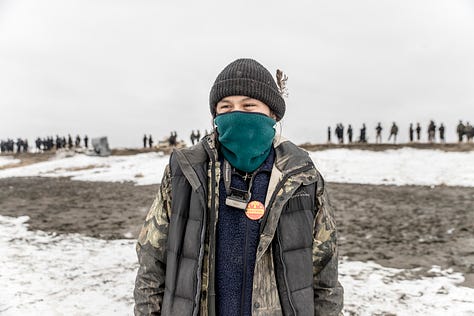
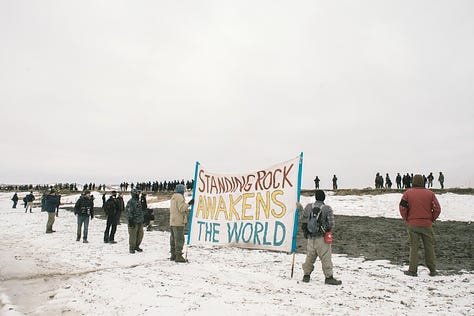
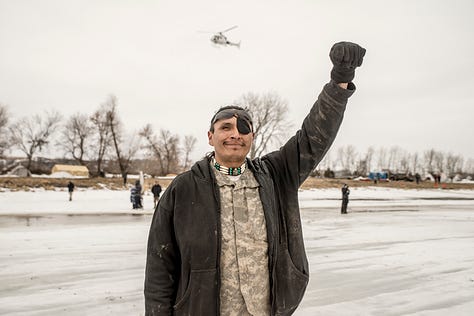
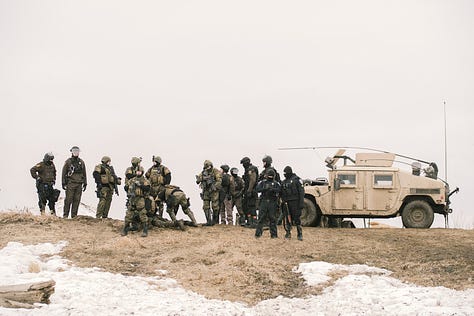
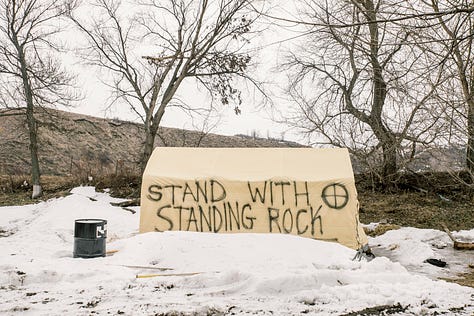
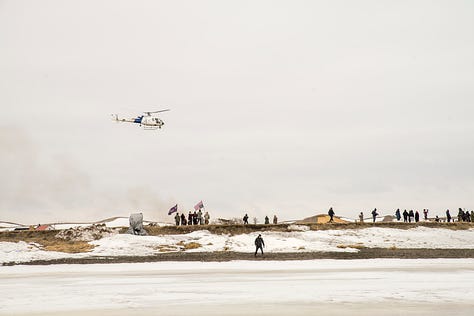
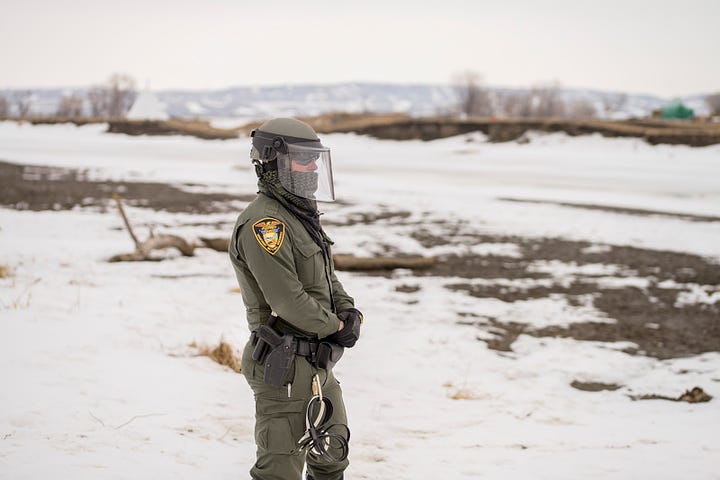
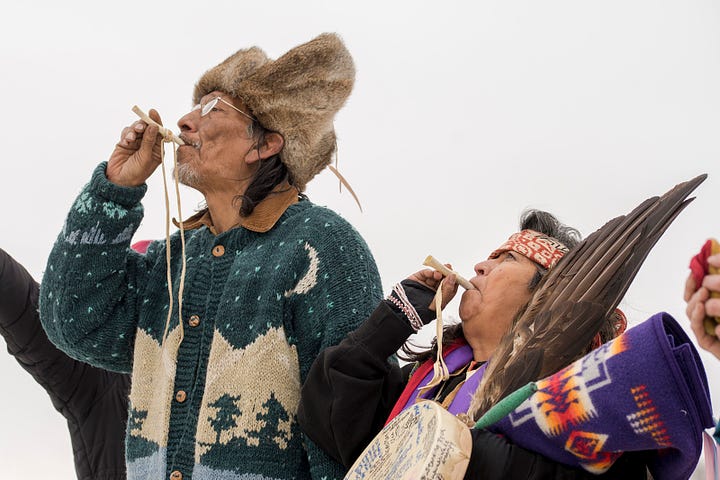
Second was to work through my own thoughts and emotions. It's been hard. I spent hours and hours and hours writing this piece. How to express such a multi-faceted feeling? For to me, the emotions of frustration, anger, and bitterness are but dimensions of the deep love that guides me. There is only love, all negativity is an expression is a distorted reflection of it
Right before I left for Standing Rock, I spoke with a Mohawk elder. Callously, I said something to the effect of “Well, if I die, it'll be a good way to go. I'm ready for come what may.” At the time, I was rushing to get there before the eviction, and everybody thought that they'd be sending in the army. She drew me close and pierced me with her gaze.
“Don't say that,” she said. “Don't go there to be a martyr. Go there to win. That's what we've always done. That's why we win.”
We didn't win. We lost. We accepted defeat.
My story
Up until February 21st, I'd been sleeping in a hogan, a sacred eight-sided Dine' home. The night before the eviction I was told that I couldn't sleep there. When I asked why I got a vague answer about something ceremonial. I didn't press for details. I found another place to sleep.
On the morning on February 22nd, I awoke at 5 a.m. I wanted to be present for an early-morning men's sweat lodge ceremony, which was to be followed by a heart-burial ceremony. It's my understanding that a buffalo heart is buried the year before a Sun Dance arbour is sanctified.
I was about to enter the lodge when I saw the fire. It took a minute for it to register that I was seeing the hogan burn. I ran over, darting in along the way to wake my friends up. They joined me outside and we gazed on in awe. It was beautiful - the flames billowing wildly, licking away at the wound in the sky. The fire blazed furiously and sorrowfully, mournful and resolute, tragic yet steadfast, somehow full of a secret,
redeeming promise.
After it burned, I caught up with the solemn procession coming from the sweat lodge and we walked to the river to perform the heart-burial ceremony. I was given the honour of digging the grave. Everything else may be gone, but that buffalo heart remains.
As an elder said: "They tried to bury us. They didn't know we’re seeds."
The Rest of the Day
How can I describe that fateful day? Things felt simultaneously unreal and realer than real. It was both like and unlike a dream. It was like a dream in that everything seemed suffused with a deeper meaning. The constant awareness of the day's finality, however, made it most unlike a dream. In slow, slow motion, the guillotine was descending.
The morning was the part of the day I will remember with the greatest fondness. The rest I will remember with a sadness too impure to call sorrow. Many people burned down their own buildings. To my eyes, who never accepted the inevitability of defeat, these fires were neither beautiful nor defiant.
Those of you who are in the habit of defying authority have probably at some point heard a cop utter these words: “We can do this the easy way or the hard way”. This is called a double bind, a false choice designed to make submission seem like the best option. The cop wants you to choose the easy way. If you accept that your only choices are the two that you're being presented, you've already lost.
The police weren’t planning to come in and crack skulls that day. Somewhere along the line, the police figured out that straight-up violence wasn’t working. Each time they brutalized innocent people, the more attention the cause garnered and the more people showed up. When I showed up at Oceti Sakowin on December 4th, an estimated ten thousand people were on site, all of whom were willing to risk arrest.
That day was the day that the Army Corps of Engineers denied DAPL the easement to drill under the Missouri River. When I arrived, songs of triumph resounded throughout the crisp winter air. To many of us, it was clear that they were employing the “let-'em-think-that-they've-won” tactic. Please do me a favour and remember this: They will let you think that you have won. When a social movement is successful in building up massive pressure, the enemy will open a valve. They will stop what they
are doing, let you think that you have won, and give things a minute to cool down. They can afford to be patient.
So, by the time I arrived at Standing Rock, the struggle had entered a different phase. Psychological warfare. I’m sure that the Morton County police force received training in crowd control. We can be sure that DAPL hired some private intelligence agency that specializes in helping companies force through unpopular projects. They earned their pay.
It was a foregone conclusion that the police would successfully evict the camp that day. As Sun Tzu said in The Art of War, “every battle is over before it begins”. No one intended to put up the kind of resistance that would actually be effective in stopping the eviction. How did it come to this? Why did the mighty Oceti allow itself to be defeated?
To put the eviction in context, we'll have to rewind a bit.
The days before February 22nd
To be fair, the weather was a major factor. Warm weather came to the Great Plains early this Spring, and by mid-February, things were extremely muddy. There were huge puddles, and many people were forced to take down their camps due to encroaching puddles. That said, much of camp was relatively unaffected.
In retrospect, for two reasons, the location for Oceti was not ideal, strategically speaking. First, it was not directly in the path of DAPL. Second, almost the entire camp was built on a floodplain. This was not simply due to a lack of foresight – the confluence of the Missouri and Cannonball rivers is an important sacred site, and the site of Oceti was chosen for this reason.
For months, rumours flew and speculation abounded about the extent to which the rivers would swell with the Spring snowmelt. It was said that the Army Corps was going to open an upriver dam, at which point the entire camp would be completely underwater. The tribal council, led by Chairman Dave Archambault, unaffectionately known in camp as “DAPL Dave”, urged everyone to go home for their own safety, citing the danger of the coming flood.
Much effort went into moving camps, almost none into preparing to defend Oceti. Many people disassembled their camps and did their best to move everything valuable off site. In the lead-up to the eviction, three new camps were founded, all on the Standing Rock reservation. One, called Cheyenne River is right off the highway about a mile South of Oceti. The others two were in the vicinity of Sacred Stone, several
miles away. These two, called Black Hoop and Eagle's Nest, were created to house refugees from Oceti.
Weirdly, whilst we were all bracing ourselves for the impending raid, we continued to build. I'd spent the bulk of my time at Standing Rock working construction, and we just kept on keeping on. It was as if we couldn't imagine doing anyting else. I was helping build a house, complete with bunk beds and a wood stove, knowing full well that the camp was about to be raided. I wasn't in denial. I knew that I was doing
this just to feel like I was being useful. It felt good to work. It was muddy, but the weather was nice. The sun shone softly, brightly. Likewise, my comrades shone, seeming even more beautiful, radiant and full of life than usual. I felt great love for my fellow water protectors. I couldn't look them in the eyes without smiling from my
soul. Their soul would meet me as they smiled back.
There was more unity in camp than usual. No drama. The calm before a storm. There were many ceremonies, many beautiful words spoken, many beautiful prayers prayed. Nothing like impending doom to awaken inner wisdom.
“We must be defenceless!”
The day before the scheduled eviction, there was a meeting for people who had decided to stay in camp on the 22nd. Everyone was asked to hand over their phones and any other electronic devices at the entrance of the tent. Then, when the meeting was about to start, the facilitator announced that a journalist would be filming the meeting, so that if law enforcement later tried in court that something had taken place in the meeting that hadn't, there would be evidence to contradict them. I don't
understand why, but everyone just accepted this nonsense. I was the only one to object, and I was told that I could sit at the back, out of view of the camera.
The facilitator of this meeting was a non-native woman I hadn't seen before. I do not understand how this vitally-important role fell to her. She had zero respect for her role as facilitator. She made no pretence to neutrality or even-handedness. She began with a long speech about how we needed to be aware that the police would construe shields as weapons, and that people who chose to defend themselves were putting the lives of everyone else in jeopardy. She said the magic words: “Remember why you
are here!” At one point she declared with stupendous moral conviction “We must be defenceless!” Her words were a reiteration of a familiar narrative: we must be prayerful, to be prayer means to be peaceful, to be peaceful means to be compliant. Defiance equals violence, disobedience equals disrespect, etc. Besides leaving camp peacefully, which was strongly encouraged, there was only one option: symbolic arrest. The double bind.
I could barely take it. I almost left. I hate being told what to do. I hate manipulative language. I hate badly-facilitated meetings. I've been to a lot of ill-conceived general assemblies in my life. In these situations, where there's no question that undercover cops are present, many activists are reluctant to speak their minds. For security reasons, they don't want to out themselves as militants, especially if they have
something planned. You've got a room full of tension, full of distrust... and one's tempted to suspect that the ones speaking most are undercovers. At a time when folks need a morale boost the most, they get exactly the opposite.
One “action” that was proposed was a prayer walk. The idea was to gather at noon with drums, prayer flags, and sacred items, and march around Oceti before continuing straight on out of camp. Valorizing surrender. This idea was taken up enthusiastically by the facilitator, as if she'd been waiting for it to be proposed.
Eventually, a woman interrupted the facilitator to angrily say something like: “This person has had their hand up the entire meeting and you haven't called on them. Give them a chance to speak!” That person then took the floor and gave a speech advocating resistance. He had a plan. He'd already started building a barricade. He wanted help.
Then, in quick succession, several other people spoke up declaring their intentions to stand up to the police. They spoke compellingly, urging courage, stating their choice to heed the demands of valour, to walk the warrior way. “We've made our choice,” was the tone. The mood in the tent made it clear that a lot of folks were in the same boat – they wanted someone to step up and take charge.
The facilitator attempted to redirect the conversation back to her personal agenda. She invoked the will of the elders. She reminded us that there were sacred items on site: didn't we care about that? At one point, I asked on whose behalf she was speaking. After some hemming-and-hawing, she took a deep breath and rattled off a few names, none of which I recognized, one of which was Dorothy Sun Bear. The
person who had been advocating building a barricade then said: “Well, I've spoken to Dorothy Sun Bear, and I've got her explicit permission to build this barricade. I'm going to start now. Whoever wants to help, come with me.”
I followed him out. We started digging holes. The plan was to fix 4 x 8 sheets of plywood to posts in the ground. It was hard work. I spent most of the rest of the day digging holes. We had some help throughout the afternoon, but it was mostly me and one other person. At first I felt good about what I was doing, then I started using my mind. It made little to no sense to build a barricade where we were building it.
Instead of blocking the entrances to camp, we were attempting to enclose a large area right next to the road. Someone left to go get the wood, but they never returned. Apparently their pick-up truck got stuck in the mud, then they got roped into helping someone take down a yurt. By the time it was dark, I didn't care about the barricade anymore. I'd figured out hours earlier it was a bad idea. I'd just kept at it because it made me feel like I was doing something concrete to defend camp. Also, I'm
stubborn.
I went to bed early that night and slept like a baby.
The Pressure Mounts
Sometimes it feels strange to remember events that occurred when you were in a very different state of consciousness. Try remembering falling in love with someone you later fell out of love with. There's a discombobulating fuzziness that comes from comparing the reality of an enchanted mind with that of a disenchanted one. I remember beauty, but my heart is hard now. It hurts to admit failure. But I'd rather
acknowledge defeat than delude myself.
Some have portrayed the resistance at Standing Rock as wildly successful, despite the eviction, despite the fact that oil now flows through the main vein of the Black Snake. These eternal optimists point to the many anti-pipeline campaigns inspired by Standing Rock. They point out that #NoDAPL has raised the political and economic cost of pipelines, and that some pipelines have been cancelled due to the new
climate of resistance. Sure, there's truth in this. Two of the biggest oil companies in the world, Shell and ConocoPhillips, both recently sold almost all of their holdings in the tar sands. All this makes me think of an archer who aims for a target, fires, misses, then paints a target around the arrow and claims to have hit the bull's eye.
Let's not sugarcoat things: we lost. We were trying to stop a pipeline, and we failed. Let's learn from our mistakes. Let's critically evaluate them. Let's study what worked and what didn't. Let's commit to being better prepared next time around. Not to say that the fight against DAPL is over. No war is ever won unless one side accepts defeat. Have the water protectors of Oceti accepted defeat? Only time will tell...
A lot took place that day. I'm only going to speak from my own experience. I spent much of the morning and early afternoon sort of roaming around, from kitchen to construction shed to the road, trying to get a sense of where people were at. At the sacred fire, the mood was solemn, sombre, and mournful, folks crowded quietly around, praying and speaking in hushed tones.
Other folks dealt with the tension by making light of it, cracking jokes and laughing with abandon. Most peculiar of all was a certain quality of ordinariness. Maybe there's only so much the mind can take before it decides to reassert normalcy. Maybe if one could just manage to ignore how surreal everything was, things would go back to normal. Make-believe. A little kid closes her eyes, hoping that because she can't see others, they can't see her.
I found a deflated soccer ball lying around in the construction building. I picked it up and started playing with it. I joked that we should challenge the cops to a game of soccer, telling them that we'd leave if they beat us fair and square, so long as they'd fuck off if we beat them. I've read about how radical clowns mess with the cops in
Europe, and it seemed like a good alternative to the binary of submission or violence. It makes sense to me to use humour as a way to diffuse tension. You can't laugh and be afraid at the same time. You can't be laugh and be mad at the same time. Radical clowning can boost protesters' morale and take the aggro wind out of the cops' sails at the same time.
I got on the radio to try to find out where the hell the vets were. No luck. For all their chest-puffery, talking about taking bullets for the water protectors, most vets were nowhere to be found on February 22nd. As far as I can tell, there were two or three vets at Oceti, while the rest stayed a few miles away over at Sacred Stone, presumably doing what they did best: drinking coffee, smoking cigarettes, and shooting the shit, probably boasting about how heroically they would defend Sacred
Stone when the cops came for them in a few days. It's easy to be cowardly when you're in good company.
Prayer Walk
I believe that it was at noon that there was a prayer walk out of camp. The day earlier, the prayer walk had been proposed as an action to boost morale. I saw this as an attempt to save face, a feel-good exercise in lionizing surrender. I kept my distance. Later I read that the leader of this prayer walk had declared victory, telling the crowd: “We're here to tell the spirits that we won”.
The hour strikes
At 2 p.m., the time that we had been told a few days prior that police would start making arrests, a group of at least thirty people gathered near the road, many bloc'ed up, wearing masks, body armour, gas masks, goggles, and other protective gear. There were three shields. Someone had created a small barricade with barbed wire at the entrance into camp. Mad props to whoever did that, if you're reading this.
No one had a plan. We were just a bunch of rebels, who didn't want to roll over and let the police move into a place that meant so much to us, a place of such global significance. We milled about. 2 p.m. Came and went without incident. Some of us started playing soccer in the mud with the deflated ball. It was fun. Doing something physical felt better than standing around with our hearts beating fast. Someone showed me where to find an inflated ball. Maybe it sounds silly, but that meant a lot to
me.
In retrospect, I realize that the police were keeping people in a state of anxiety deliberately. Thing would amp up, as if something big were about to happen, adrenaline would start pumping, and then nothing would happen. It seems psychologically more unsettling to keep people in a state of confusion as to whether they are in danger than to straight up threaten them with violence. This makes sense when you think about it. What happens when adrenaline wears off? Fatigue. Repeat this a few times, and the will to fight is much weaker than at the outset.
A dour-faced woman that I'd only once seen before wound up in a the important role of police liaison. She wore a shabby high-visibility vest with the words “neutral mediator” written on it in sharpie. She wasn't presenting herself as a water protector, but as a third party working for some unspecified organization. Judging by the effects of her interventions, I'd bet money that she was a cop. Everything she said was
fear-mongering.
We were told at one point that those people who wanted to be peacefully arrested were to go to the road. There was a subtle threat woven into the presentation of this option, in which it was implied that people who remained in camp would also be arrested, but face more dire consequences, such as police violence and felony charges.
Later, in a variation on the same theme, the police liaison came back and told the remaining water protectors that if they didn’t leave, the police would be coming into the camp “with live rounds”. I thought this was ridiculous: don't police normally have “live rounds” in the gun at their hip? But energy flows where attention goes; little things like this contributed to a doubtful, indecisive mood.
One theory of hypnosis is called atavistic regression. It posits that hypnosis works because evolution prepared human beings to respond automatically to suggestions given by a trusted authority when the fight-flight-or freeze instinct kicks in. It's a survival thing; sometimes there's no time to think. This theory resonates with me. I've
seen it often - people who are scared, confused, or anxious are quick to follow orders.
What should be done in such moments? My opinion is that at such times it would be appropriate for affinity groups to organize themselves according to a command structure. If this sounds hierarchical to you, bear in mind that anarchist forces in the Spanish Civil War and Makhnov's Black Army both had commanders, as do the revolutionary forces of Rojava. Core to anarchism is the concept of voluntary association – the right of human beings to associate and disassociate themselves at
will. At least in theory, there's nothing oppressive about a temporary, consented-to command structure.
Sometime no long after 2 p.m., a handsome young man rolled in and gave an incredible performance. You know how in sports movies, right before the climax, the captain gives a barn-burner of a speech that rouses the team from meek losers to mighty champions? Or in the movie Braveheart, how the main character gives an epic speech culminating in the words “They may take our lives, but they cannot take our freedom!” Evensitting in your seat, your blood starts rushing.
This was a speech much like that, calling upon everyone in the crowd to rise to the occasion, to find their warrior spirit. There was a twist, though; it wasn't a call to fight, it was a call to flight. Pacing back and forth, his whole body electric, hands and arms gesticulating furiously, this zealot gave a passionate speech about how we should all march out of camp, in the name of the movement, in the name of the
greatest good, in the name of everything sacred, out of respect for the land, the Lakota people, the elders, and all our relations. He invoked the spirits. He called on the thunder beings. Other than a short beginning, it was framed as a prayer. As such, it wasn't up for debate. Who interrupts a prayer? It framed walking away from the camp as the noble thing, the intelligent thing, the brave thing. It was an incredible use of language. Let's unpack it.
One of the things that he yelled with conviction was a phrase that we'd heard many times before, in different contexts: REMEMBER WHY YOU ARE HERE!
I urge everyone to think about this phrase, because it was incredibly effective at silencing people. When the subconscious mind follows the command “REMEMBER”, it seeks to internally access the right memory. On the surface, it is benign, but its effect is powerful. The command “Remember why you are here!” also implies togetherness - that why you are here is the same as the reason I am here, and therefore our views are aligned, and therefore what I am encouraging to you to do is what you yourself want to do. Say the words “Remember where you are here!” and then follow it with a volley of embedded commands, and whilst the conscious mind is searching for an amorphous memory, the subconscious mind accepts the suggestions.
I do not know who this person was. He wore an upside-down American flag on his vest, a symbol used by the vets. He was white-passing. I had seen him before, but never had a conversation with him. I'd always distrusted the vets, hence I avoided them.
It was almost 4 p.m. When the police started threatening people with arrest. There was a crowd on the road, where there was a line of riot cops. The boss was ordering people to leave or face arrest. A lot of people had cameras. Some were livestreaming. Legal observers were present. The line between spectator and participant was blurry.
Then, the first arrest. A snatch squad rushed forward, grabbed someone, and pulled him back behind the police line. Some people fled in terror.
I saw my chance. I still had the soccer ball. I decided to play the prank. I'd already decided I wasn't voluntarily leaving. If I'm going to be arrested, I thought, at least it'll be on my own terms.
As the boss man advanced on the crowd, menacingly, shouting to the crowd that this was their last chance, I got in his face. My arms were outstretched and I was holding a soccer ball. My body language said: “come now, let's be reasonable”, and I used the tone of voice you'd use to break up a fight. I said something to the effect of: “Hey, hey. There's no need for violence. We can settle this with a nice, wholesome
game of soccer. If we win, you can go away. If you win, we'll leave.”
As soon as I'd said this, the boss cop, looking somewhat confused, grabbed me by the shirt and said “You're under arrest.” I wasn't done, though. I went on: “Listen, I know that some of you are probably Christians...”
He lost it. I'd touched a nerve. He lunged at me brutishly, forgetting all his training. I'll always remember that look on his face. In that moment, he wasn't a boss anymore. He was a confused little boy. I felt like I could see into his soul. His eyes were so blue, so bright. His brow was furrowed, like someone trying in vain to understand what they'd done wrong. Those blue eyes were full of hurt, the hurt of guilt. It's funny how time slows down in moments like this. This one moment seemed to last a long time, but it couldn't've been more than a second. I could see him as a child, attentive at Sunday school, wanting to grow up and be a good guy, to stop bad guys from hurting people. I understood very clearly in that moment that he didn't want to be there, that he didn't believe that what he was doing was right, that he had his own morality,
and that he knew that he was doing something against it. It was very humanizing.
You see, I'm a second-generation environmentalist. My father raised me a certain way. As much as I've rebelled, who I am today is probably pretty much exactly who my father hoped I'd become. If he was alive today, he'd be proud of me. What's my point? I too grew up wanting to be a good guy, stopping bad guys. Now that I'm a grown-up, the central focus of my life is fighting the oil and gas industry. See the connection?
How was this cop raised? What did his father teach him? What makes him proud? Who would he be if he was born into the family I was born into? Who would I be if I was born into the family he was born into? Yeah, yeah, yeah, ACAB, and all that... but in that moment I felt compassion towards this human being, the hapless host to the dominant parasite – his uniform.
While he was trying to grab me, I had time to say: “I ask you this: If Jesus came back, would you recognize him? Would you recognize your saviour?”
The way he came at me made it easy for me to stay on my feet. More cops grabbed me. Before they could force me to the ground, I yelled: “YOU'D CRUCIFY HIM AGAIN! YOU WOULDN'T RECOGNIZE HIM – YOU'D CRUCIFY YOUR SAVIOUR!”
Then I lost my footing. They slammed me to the ground. Good thing I was wearing a helmet. Otherwise I would have been hurt.
I went limp. I'd made my point. From this point forward, I was mild-mannered. There's nothing to be gained from pissing off cops once you're in custody.
I was charged with two misdemeanours – obstruction of a federal function and resisting arrest. Eight other people got arrested along with me. We were taken to the cop shop, then driven three hours away, where we spent the night in jail. We weren't beaten, spat on, insulted, or abused. The worst part of the experience was spending three hours in a van with our hands bound. It hurt. We got out in the morning and had
lunch at a Chinese buffet. The food was pretty good. Last time I spoke with the legal team, they told me that dozens of misdemeanour charges had been dropped, and that there's a good chance that my mine will be dropped too. And that is where my story ends.
Some Seeds Need Fire to Open Them
Oceti meant a lot to me. It came as the fulfilment of a dream and the answer to a prayer. Before the movement at Standing Rock arose, I envisioned the anti-pipeline movement giving rise to truly sovereign territories. This is what decolonization means to me – not a shift in attitude, but to free land-based communities from state control. It was my hope that Oceti would become an autonomous zone, where plans for a
more beautiful world could be hatched. I prayed long and hard for exactly such a thing to take place.
Now that my wish has been granted, and its time has come and gone, I'm left picking up the pieces of my dreams, shards that will cut me if I hold them the wrong way. I'm driven by a maddening hunch that if I put them together the right way, they'll spell out a secret message that will re-enchant the world. I spent hours and hours and hours writing this piece. How to express such a multi-faceted feeling? For to me, the emotions of frustration, anger, are but dimensions of one feeling, which
also includes dimensions of deep gratitude, deep love, and above all, faith.
Please, make no mistake: I have tremendous faith. I am a spiritual man; my activism is my spiritual practice, nothing more, nothing less. I believe in spirits, and I trust in the mysterious forces that were with us at Standing Rock. I know that they're with me still, along with many, many others. I do not doubt that what happened at Standing Rock is part of a great unfolding of something that I may only understand when I leave this world.
I too acknowledge the magnificent beauty of what transpired at Standing Rock. The beauty of life is not diminished by death, nor is the beauty of a moment in time diminished by its ending. The spirit of Oceti Oyate will live on in the hearts and minds of all those who gave themselves whole-heartedly to it, and each of these water protectors now carries a seed within their hearts, which they will take to the four directions. And some seeds need fire to open them. Of these many seeds, some will find fertile soil. Who's to say what will grow forth from them?
I'm profoundly grateful to have been a part of this moment in history, which will dwell in our collective memory for generations. For a time, I lived my dream of living in a society without authority, without money, rooted in a deep respect for all life. At Standing Rock, we were free. We felt part of the Great Circle of life – deeply connected to both the past and the future, drawing from a well that is the source
Understanding the Enemy Within Our Ranks
Here's my challenge: I've had a nagging sense that unseen machinations were largely responsible for the defeat of Standing Rock... and if we cannot see the enemy at work, how can we understand it? And if we don't understand it, how can we counter it?
Here's the thing: I believe that Oceti Oyate was defeated because of shrewd COINTELPRO-style tactics. Divide-and-conquer tactics. Psychological warfare, spiritual warfare, whichever you prefer. Just like everyone else, though, I'm left guessing. The available evidence doesn't lend itself to any tidy conclusions.
We can theorize, though, and we should. Answer me this: How much has information technology advanced since the '70s? How much more insidious has marketing become? Dramatically, no? Why would the field of intelligence be any different? It's only safe to assume that whatever government programs (and their corporate counterparts) have descended from COINTRELPRO are leaps and bounds ahead of their predecessor. The enemy is amongst us... sowing seeds of discord, pacifying us when it is strategic to agitate, agitating when it would be wise to stand down.
What's worse is the thought that the enemy is within our own minds as well. Many people on our side have internalized the mainstream media narrative of “good protester vs. bad protester”. Now we have the narrative of the “good ally vs. Agitator.” Certain ideologies are operational and self-reinforcing at this point – ideologies which may have promoted by our enemies in ways too obscure to pin down.
Some will consider this conspiracy theory, but I'm convinced that certain attitudes serve those in power too well to have arisen accidentally.
What I've got is my own experiences, my own intuition, my own perceptions, and my own ideas. I can't point my finger at anyone and accuse them of being a government agent without evidence. I can tell a story, though. I can do my best to convey to others what it feels to live inside a riddle. Perhaps my words will awaken within you, comrades, the wish to decipher it.
And decipher it we must, for unless we do, social movements will continue to fall prey to divisions deliberately caused by our opponents. We will turn on one another, we will fall into traps, and we will be outmanoeuvred, time and time again, until we learn our lesson. It's a cliche, but I'll say it: Those who do not learn from history are doomed to repeat it.
Make no mistake: we can be sure that state and corporate forces are at this very moment recruiting and training agents to disrupt our movement, to derail us, to pacify us, to divert our energy into useless channels. They'll use what they learned from Standing Rock. They'll use spirituality to divide people. They'll use clever techniques of persuasion to promote weak ideas, tactics, and strategies. They'll use
the politics of legitimacy to divide people. They'll use smear campaigns. They'll use anti-oppression politics, especially the spectre of the “good ally”. They'll exploit fault lines, such as race and gender. If we are to prevail, we must be solid. We must be resolute. We must practice a culture of solidarity. We must be strong in ourselves,
unwavering in our belief, unshakeable in our determination. And we must be willing to be honest with ourselves; preferring hard truth to easy fantasy.
This Ain't Over
Lastly, to my enemies reading this, mark my words: This ain't over. The day is fast approaching when you will realize that we are no longer resisting you. You are resisting us. You may have carried the day, but the future belongs to us. A new world will be born from the ashes of your crumbling empire, and day will break on the dawn of total freedom.
Our deeds will be celebrated; yours will be reviled. Our descendants will be proud of us; yours will be ashamed. We will leave this world freer than we entered it; for you, the opposite is true.
Your legacies will live in infamy, serving as nothing more than pathetic examples of human stupidity, sad reminders of the price of ignorance, cautionary tales about the dangers of greed. We are armed with visions infinitely more powerful than your money, your guns, and your lies. You've seen our movement grow, but you ain't seen nothing yet.
We're just getting warmed up, motherfuckers.
MNI WICONI! WATER IS LIFE!




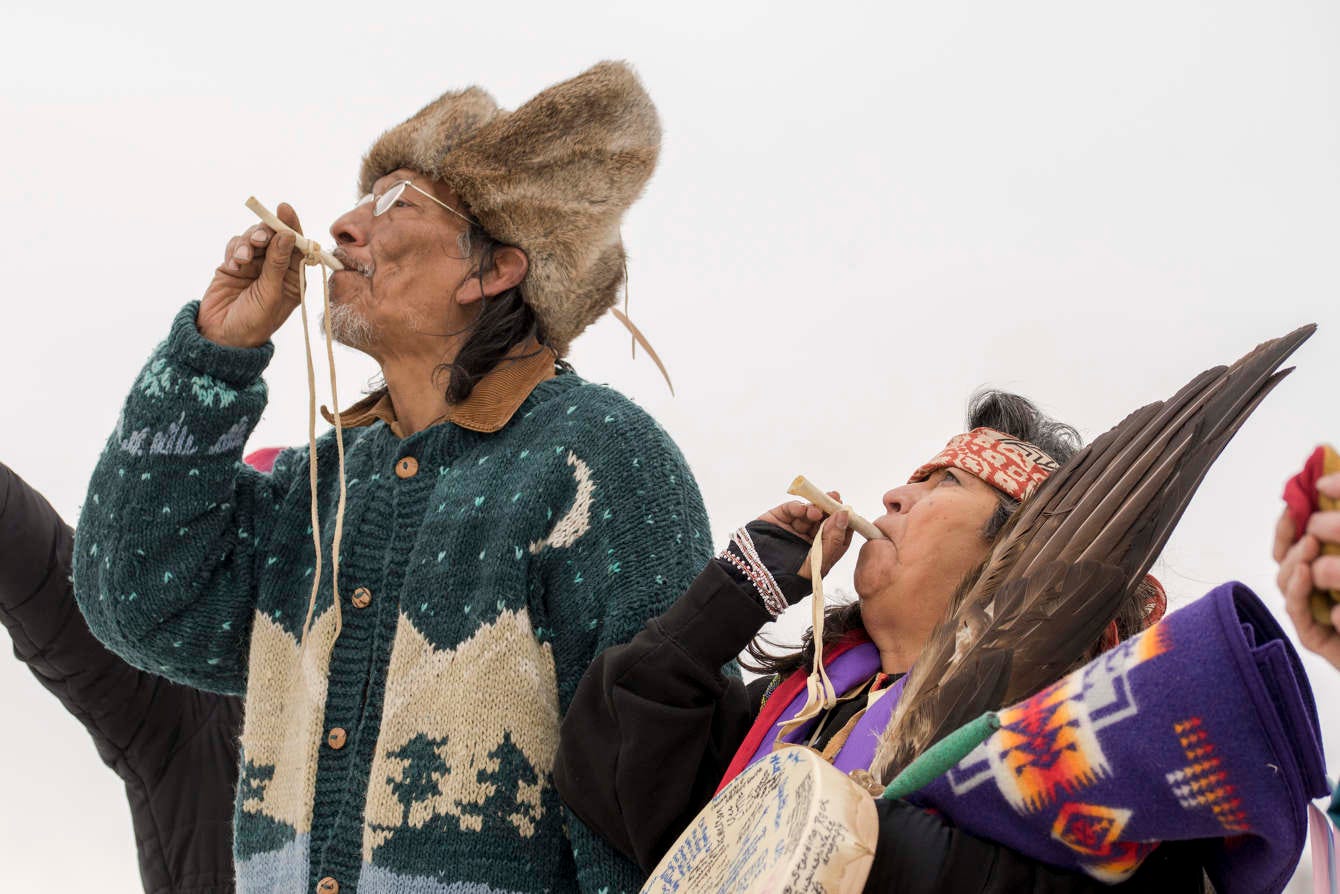
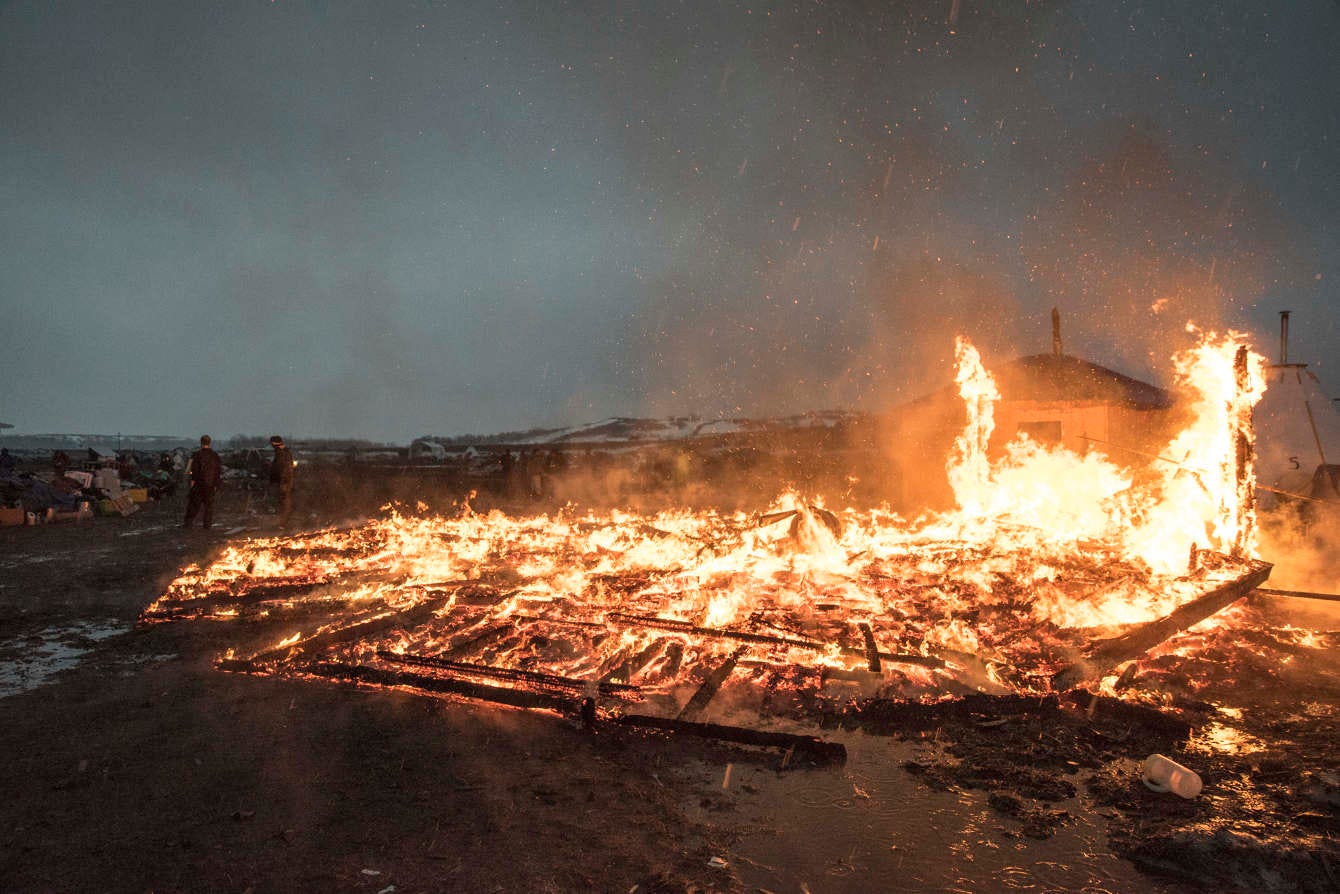
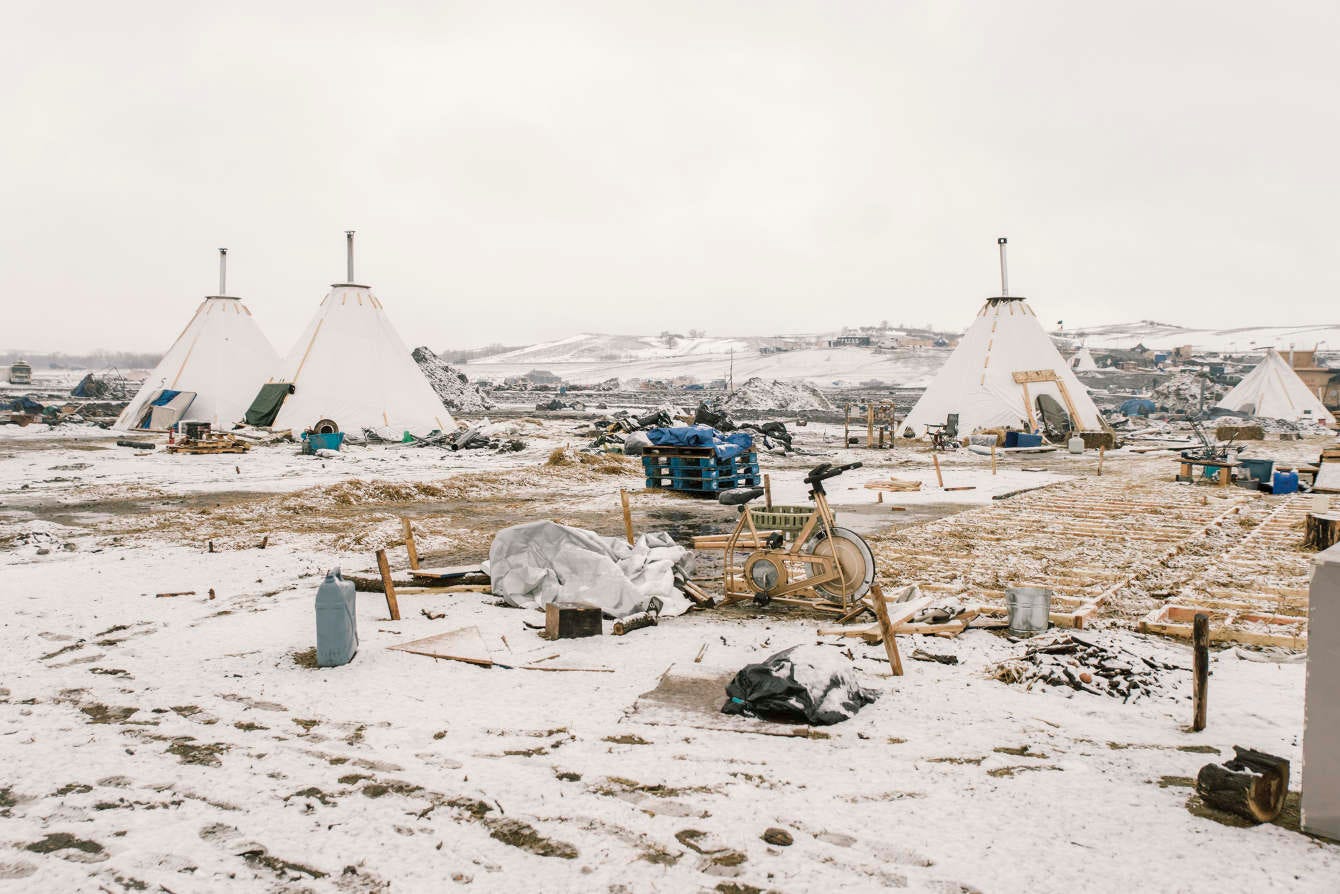
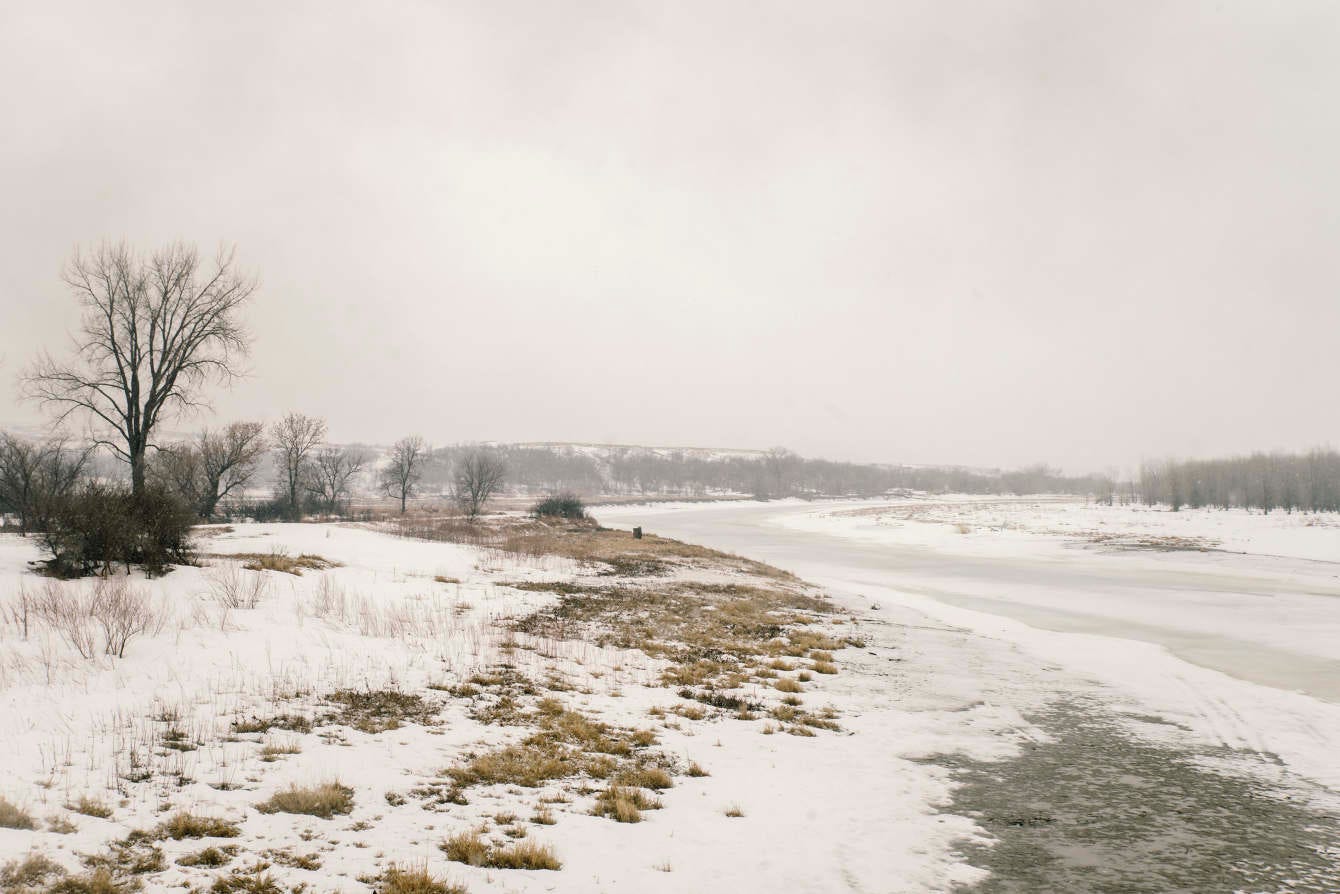
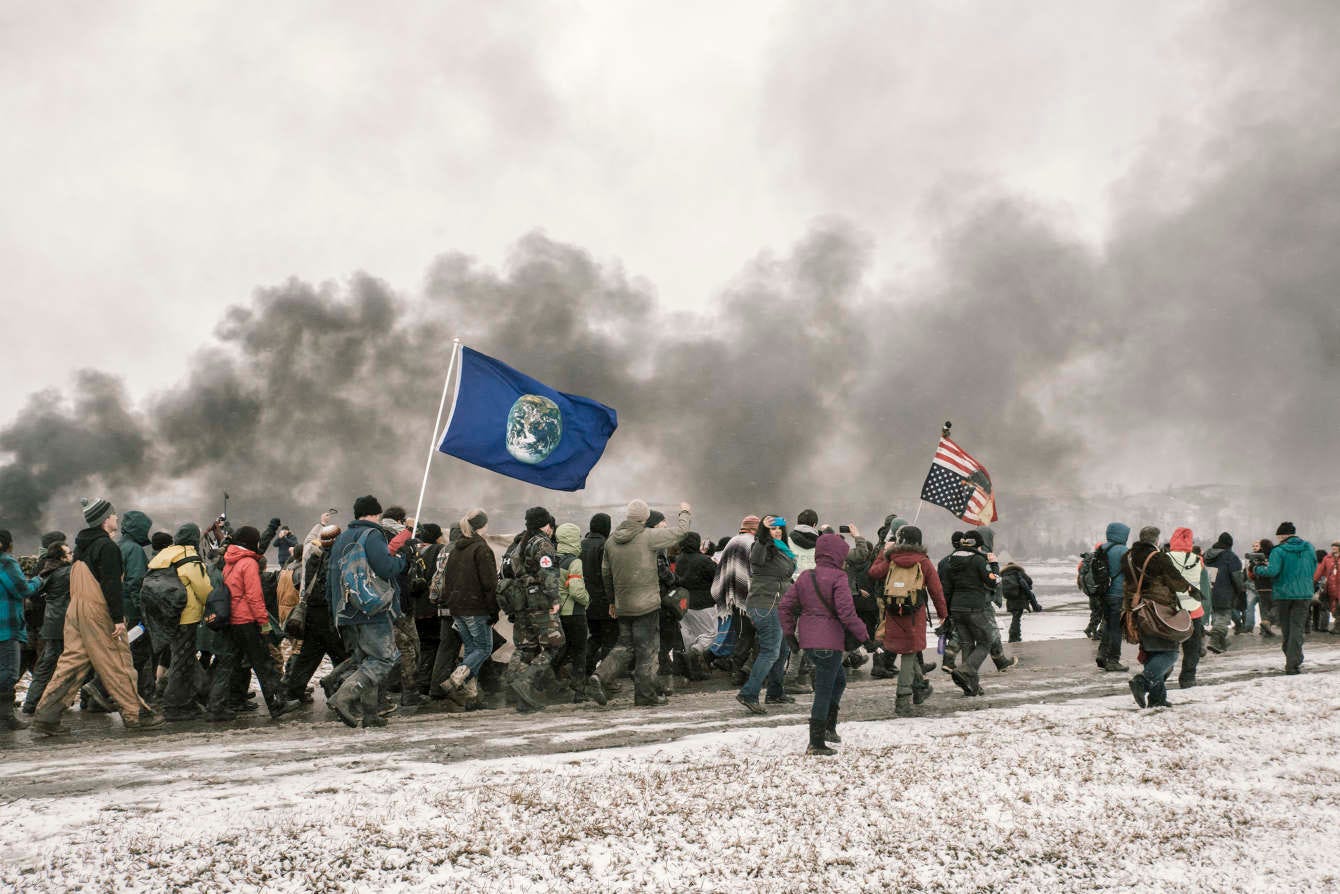
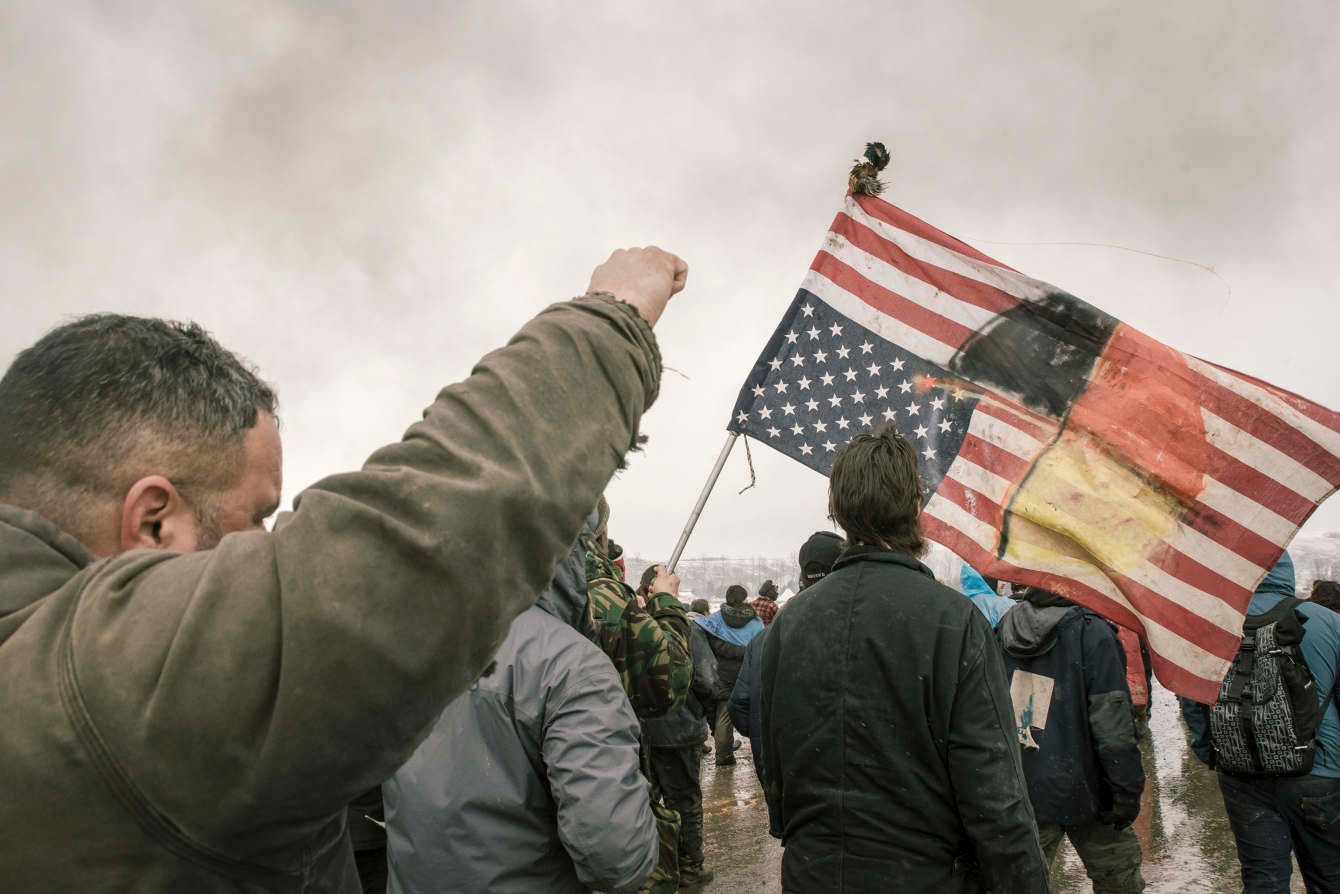
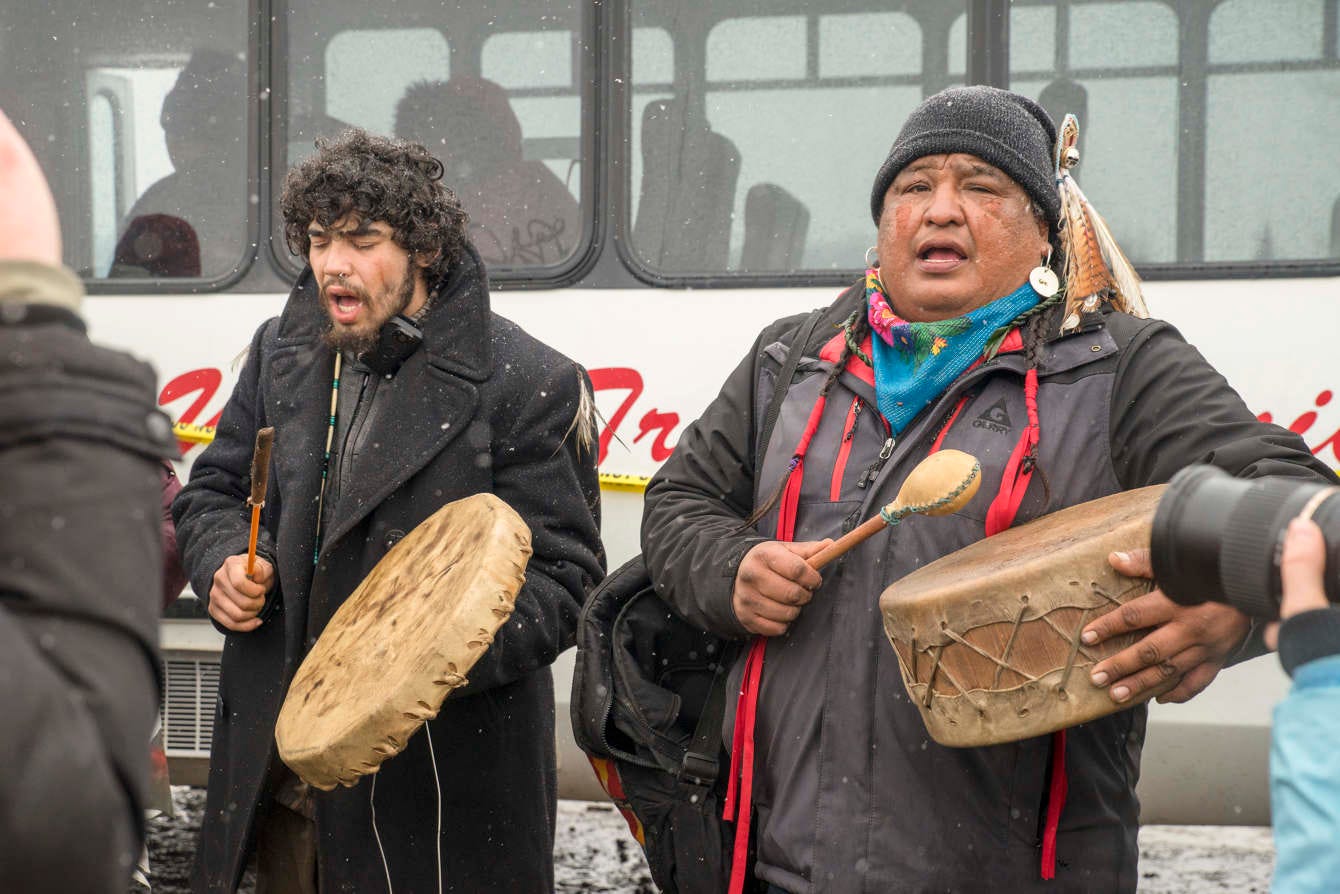
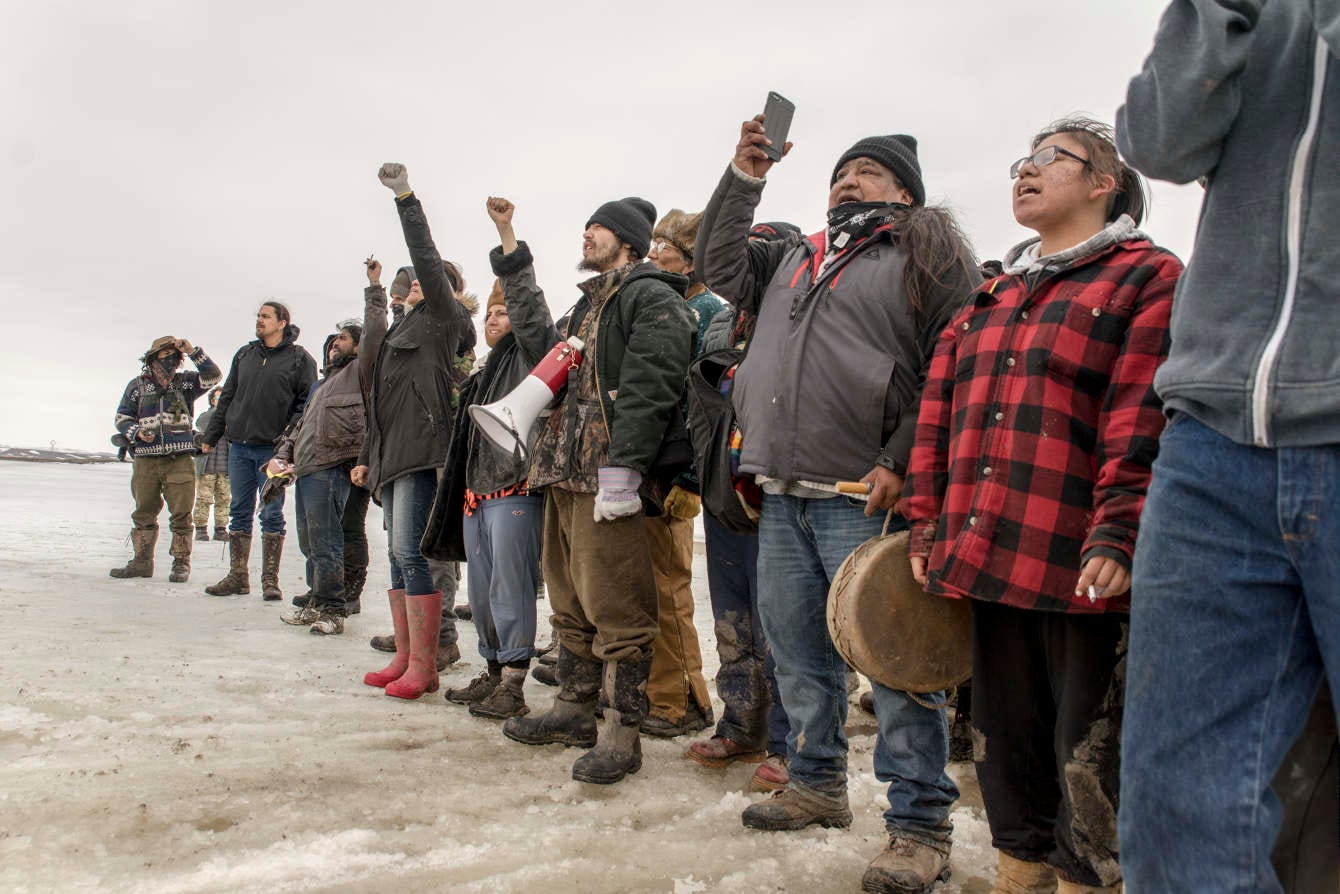
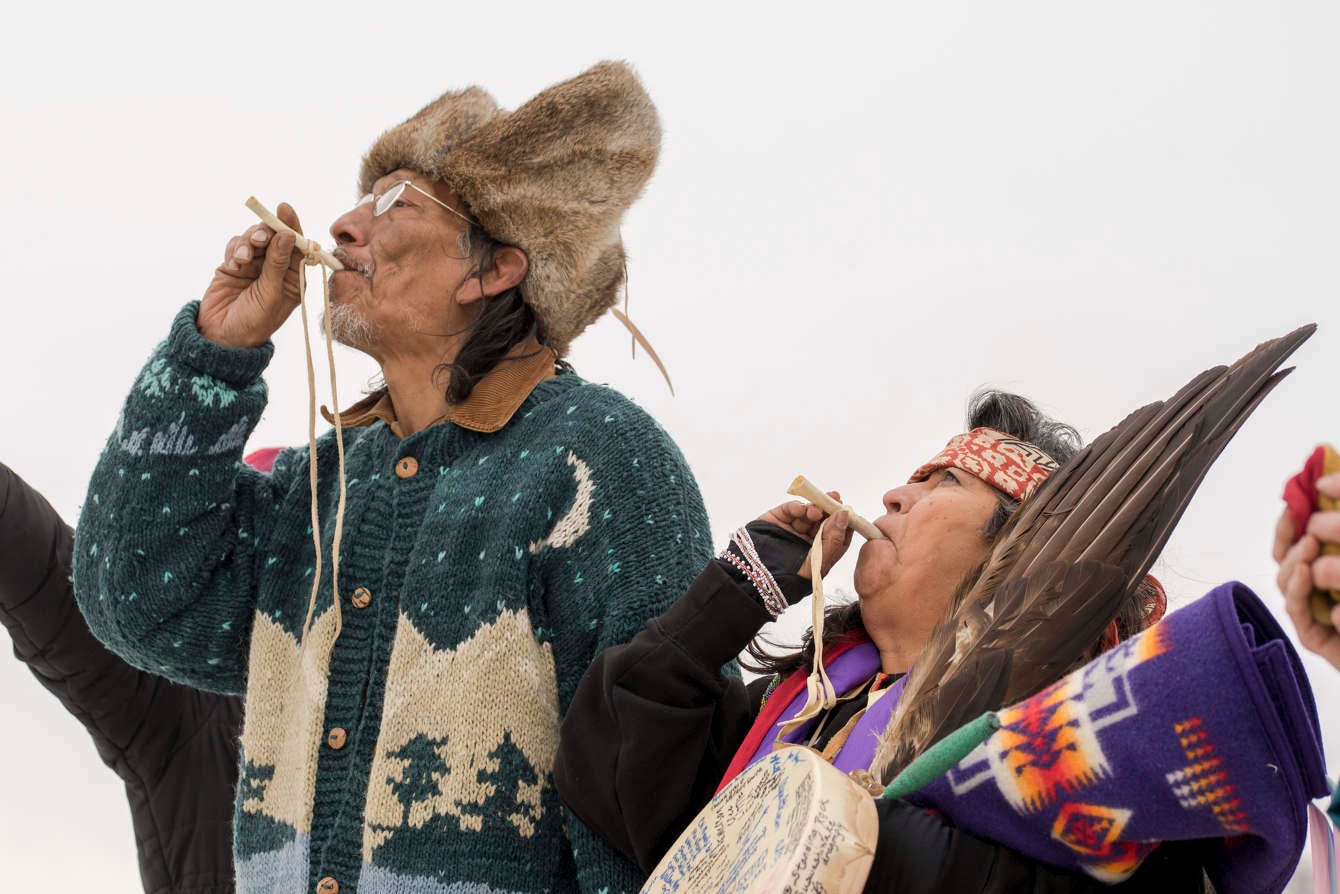
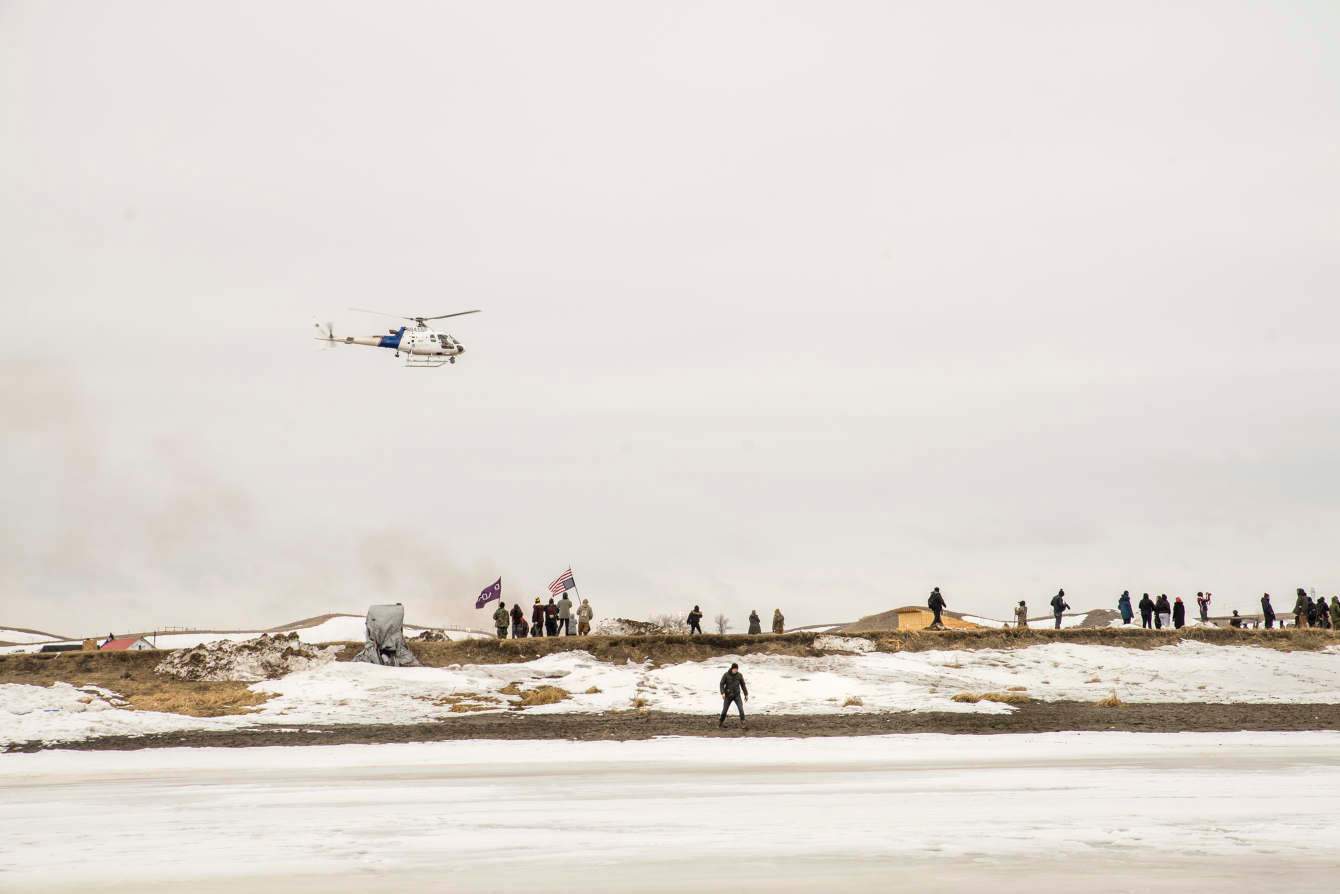

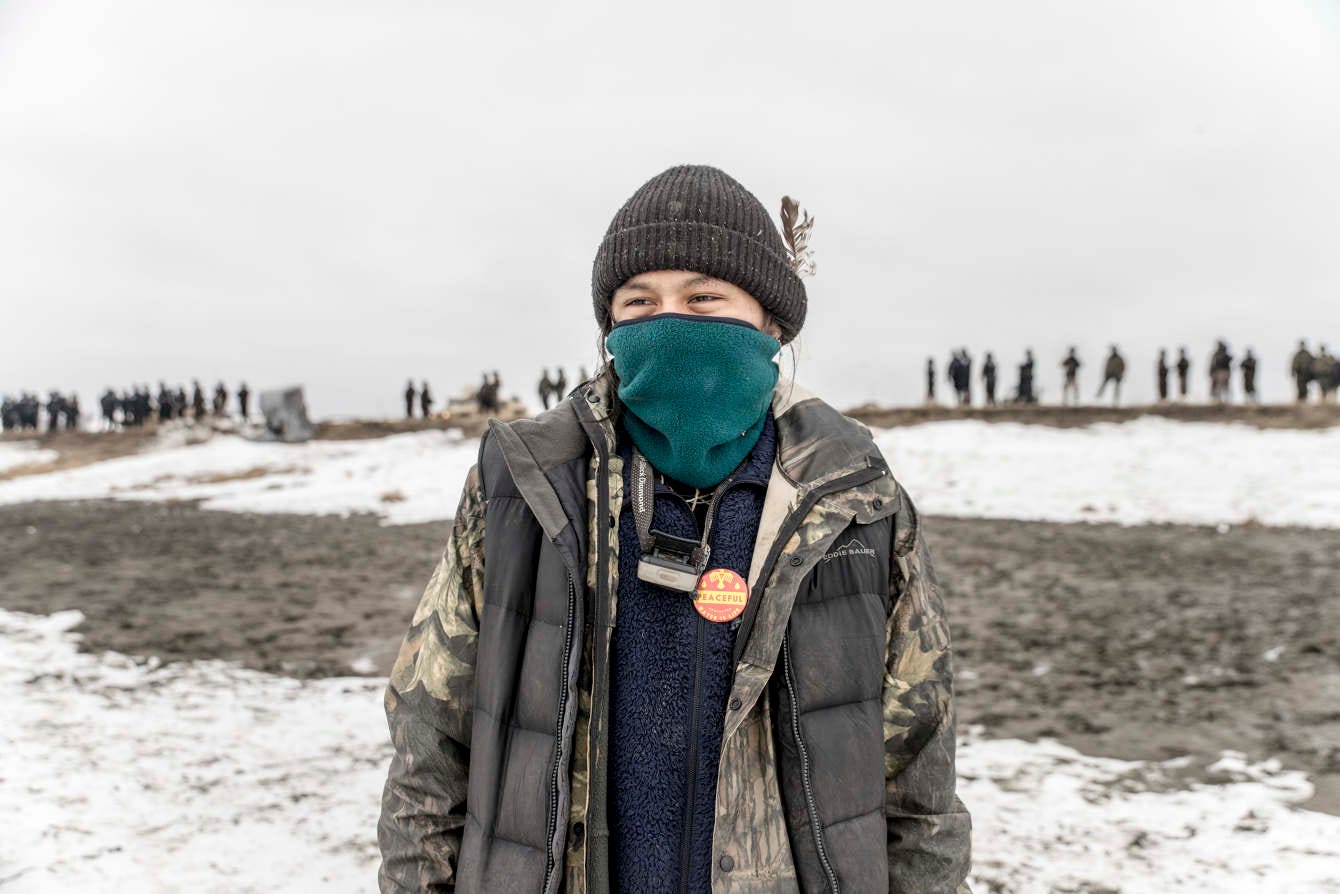
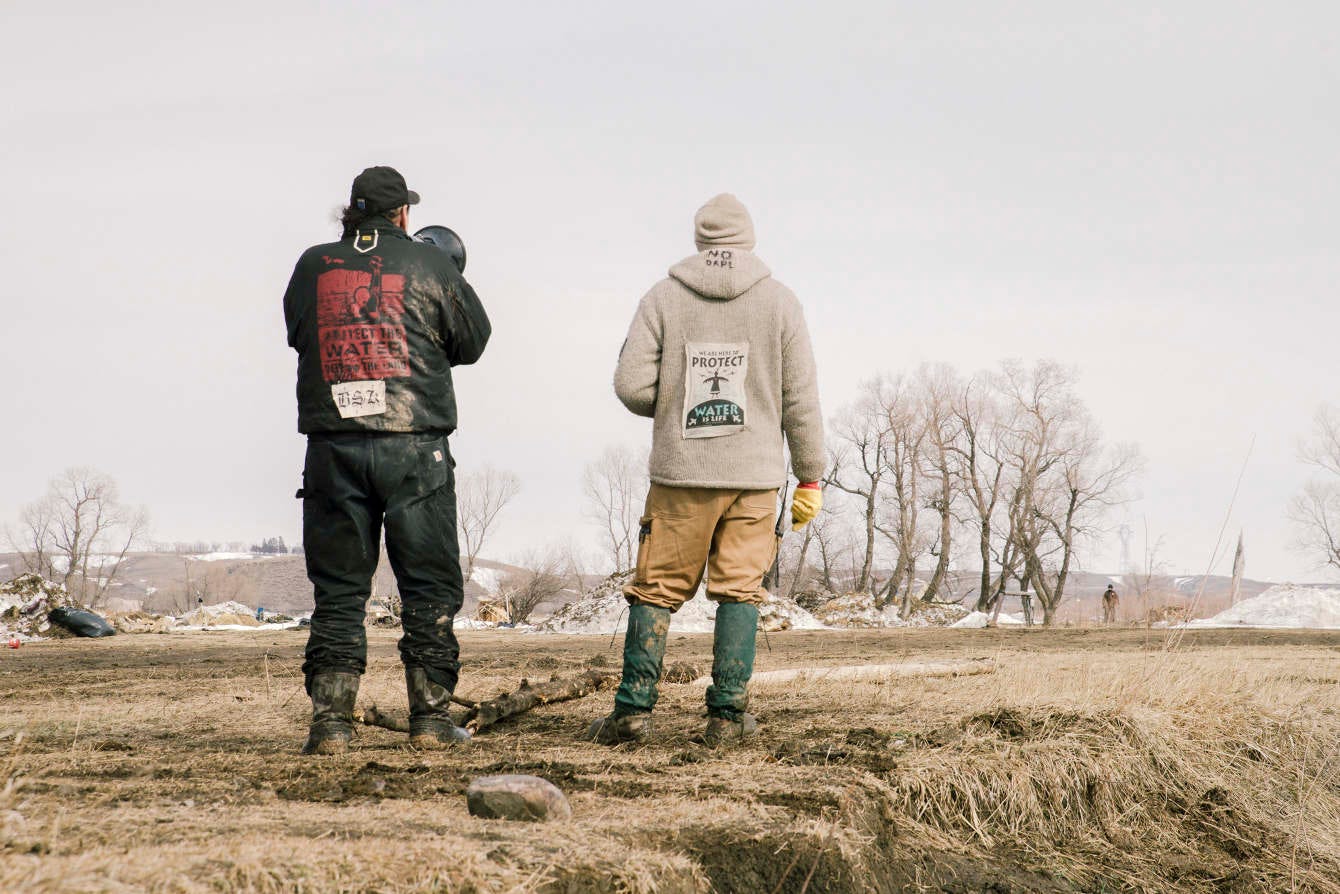
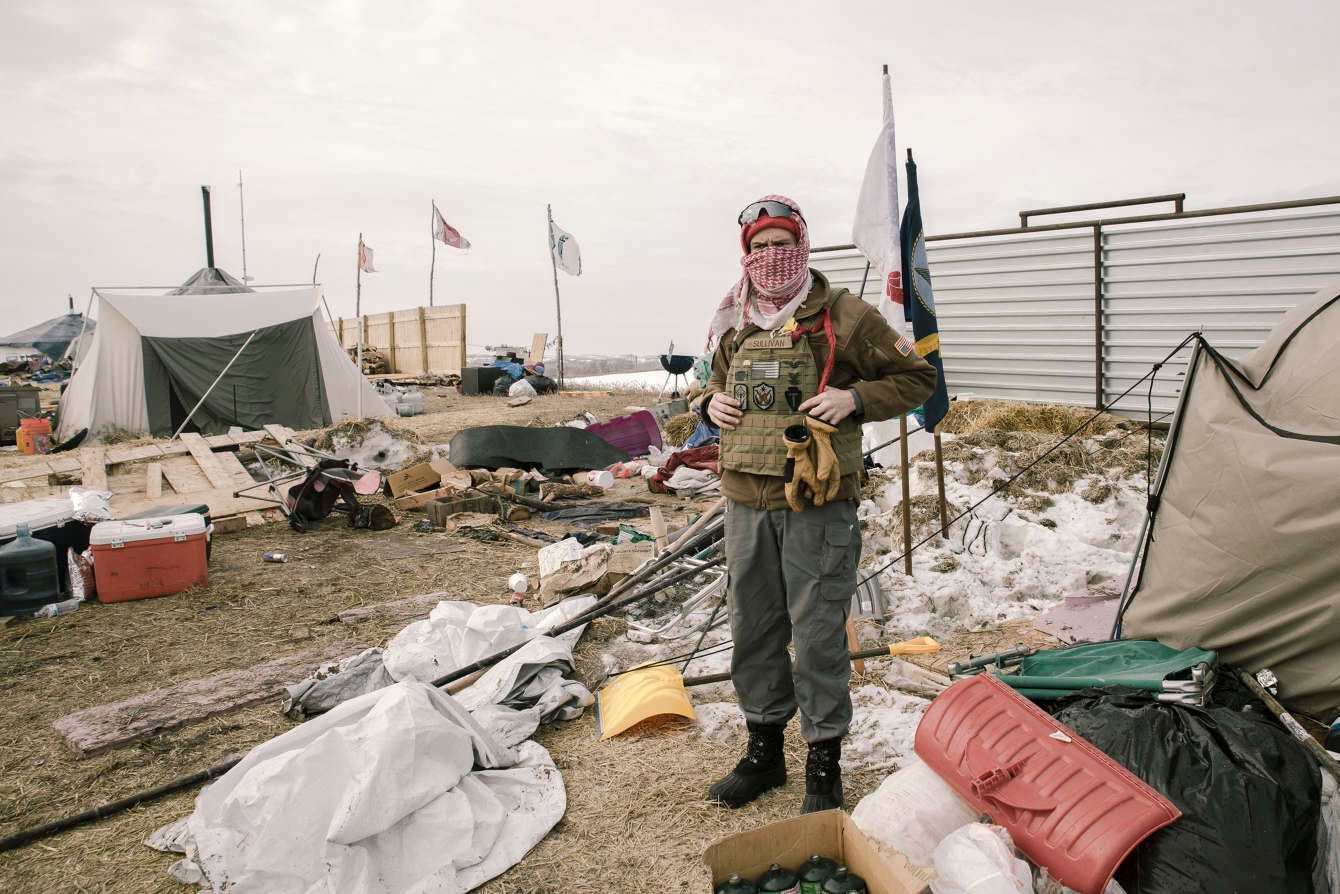
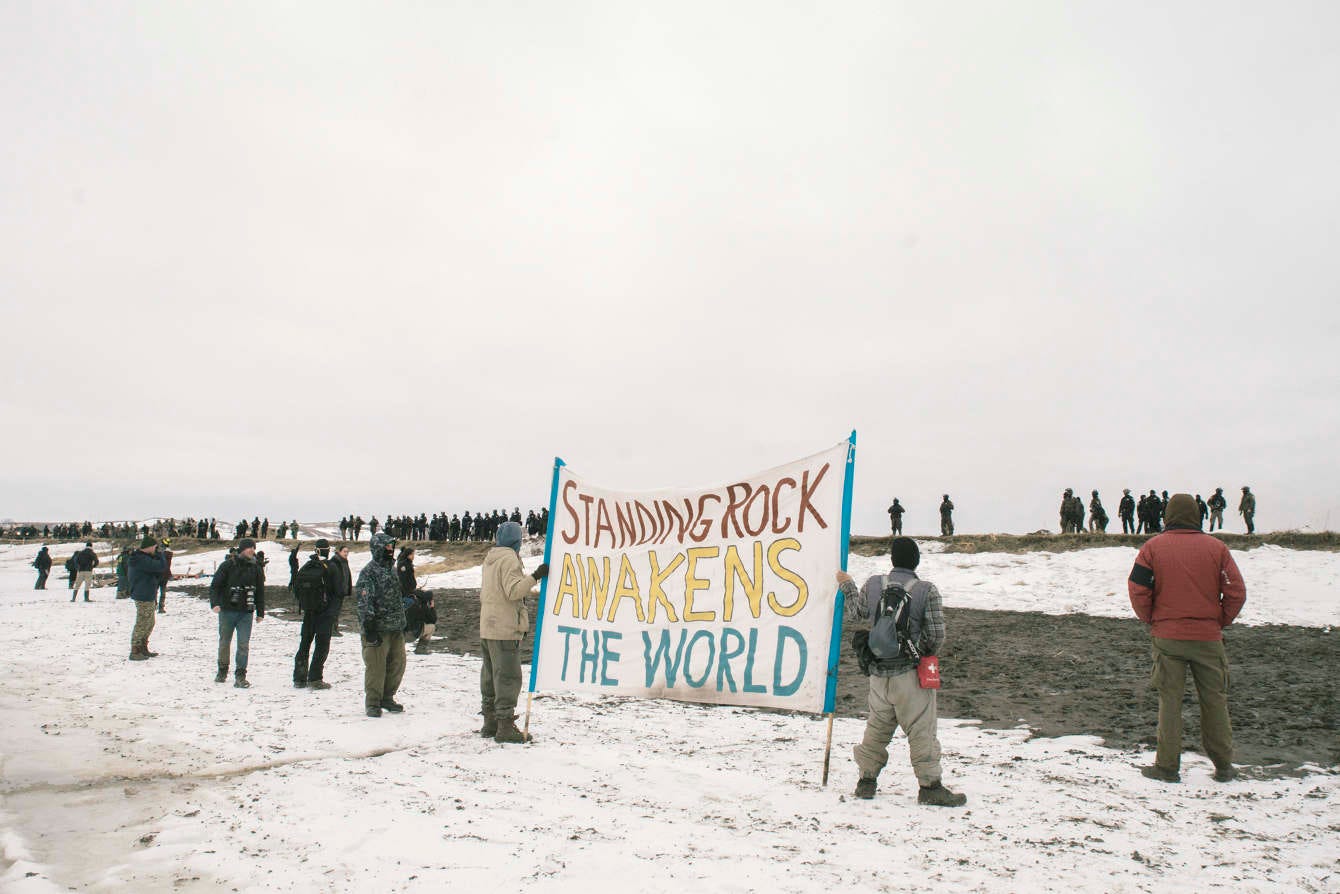
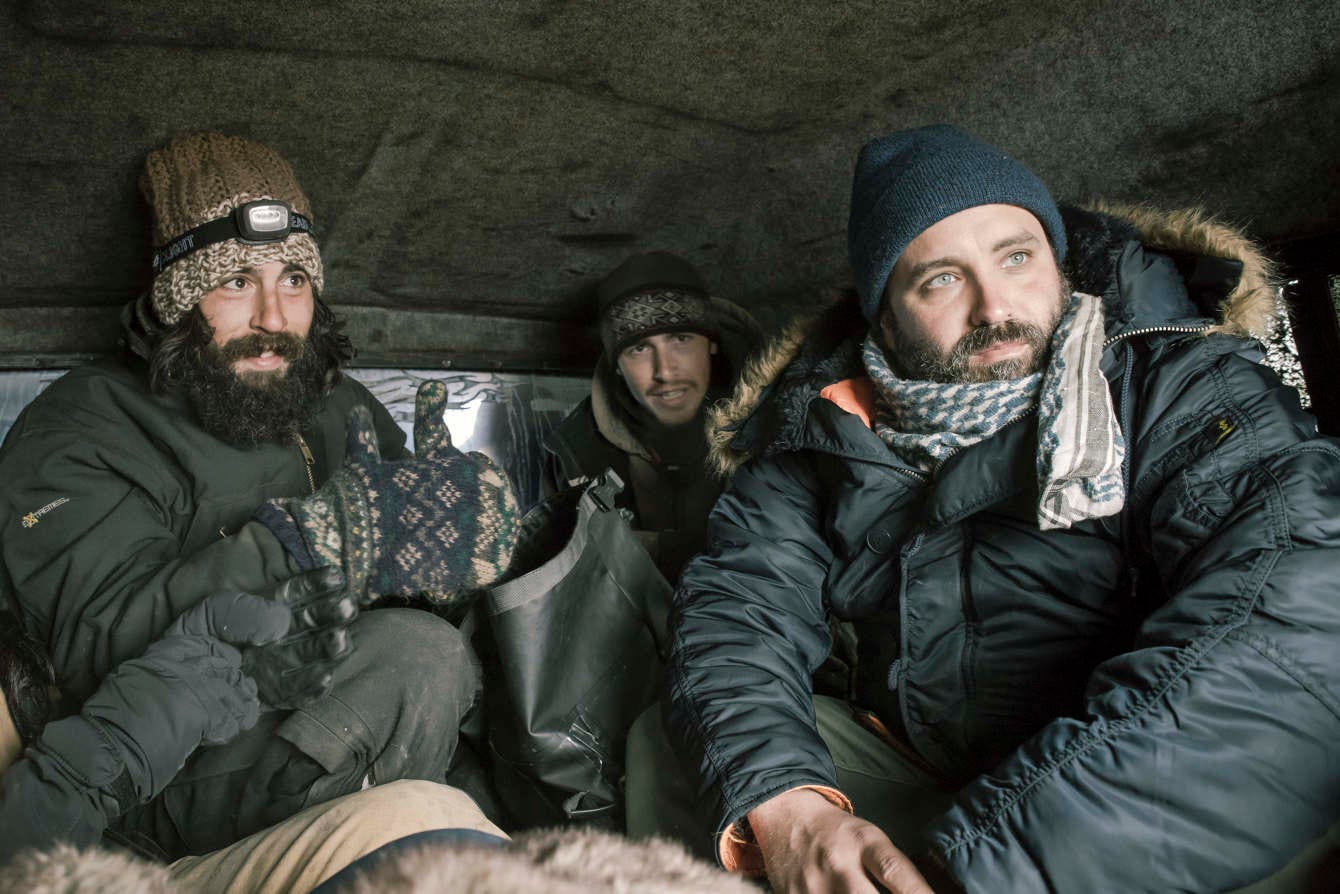
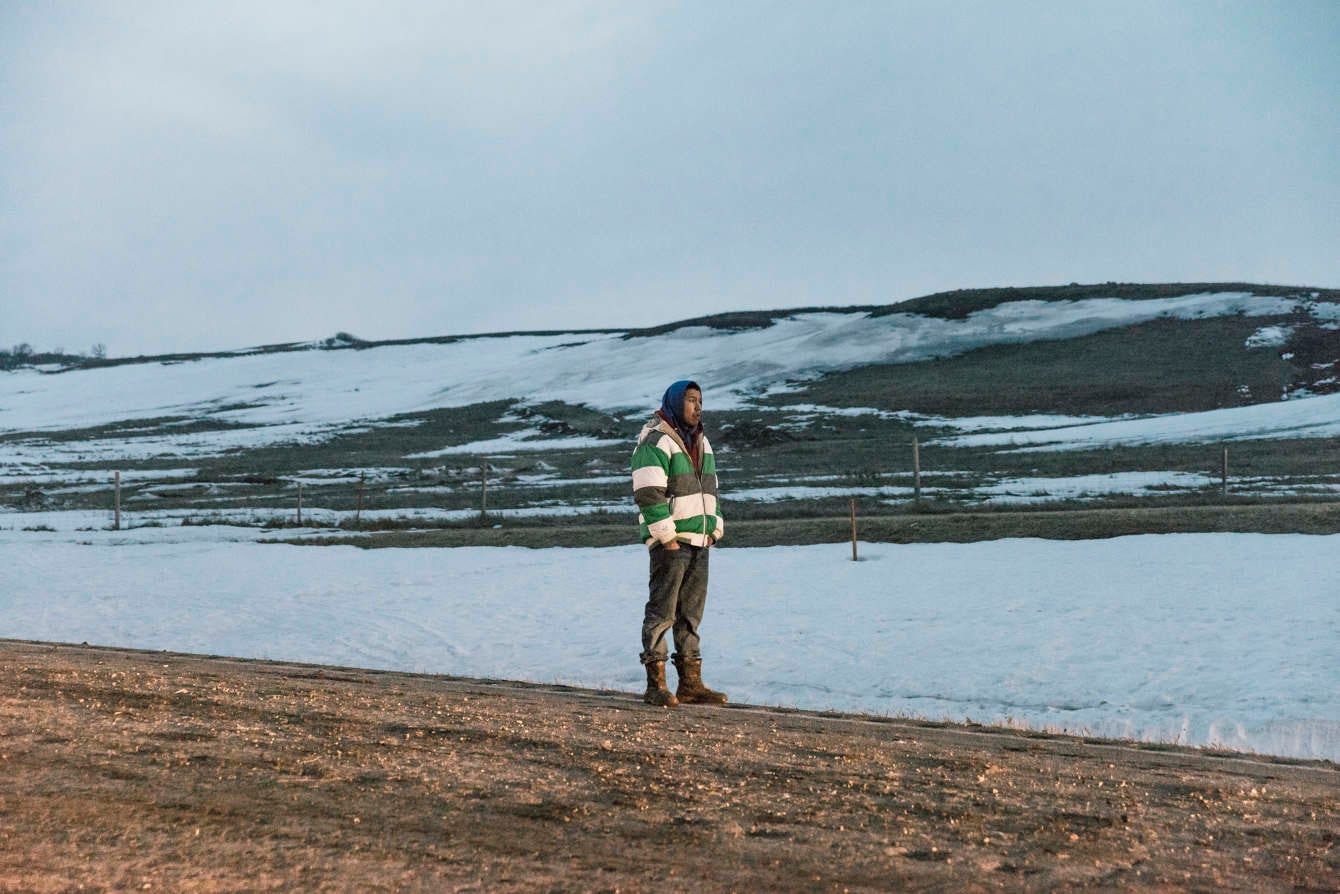
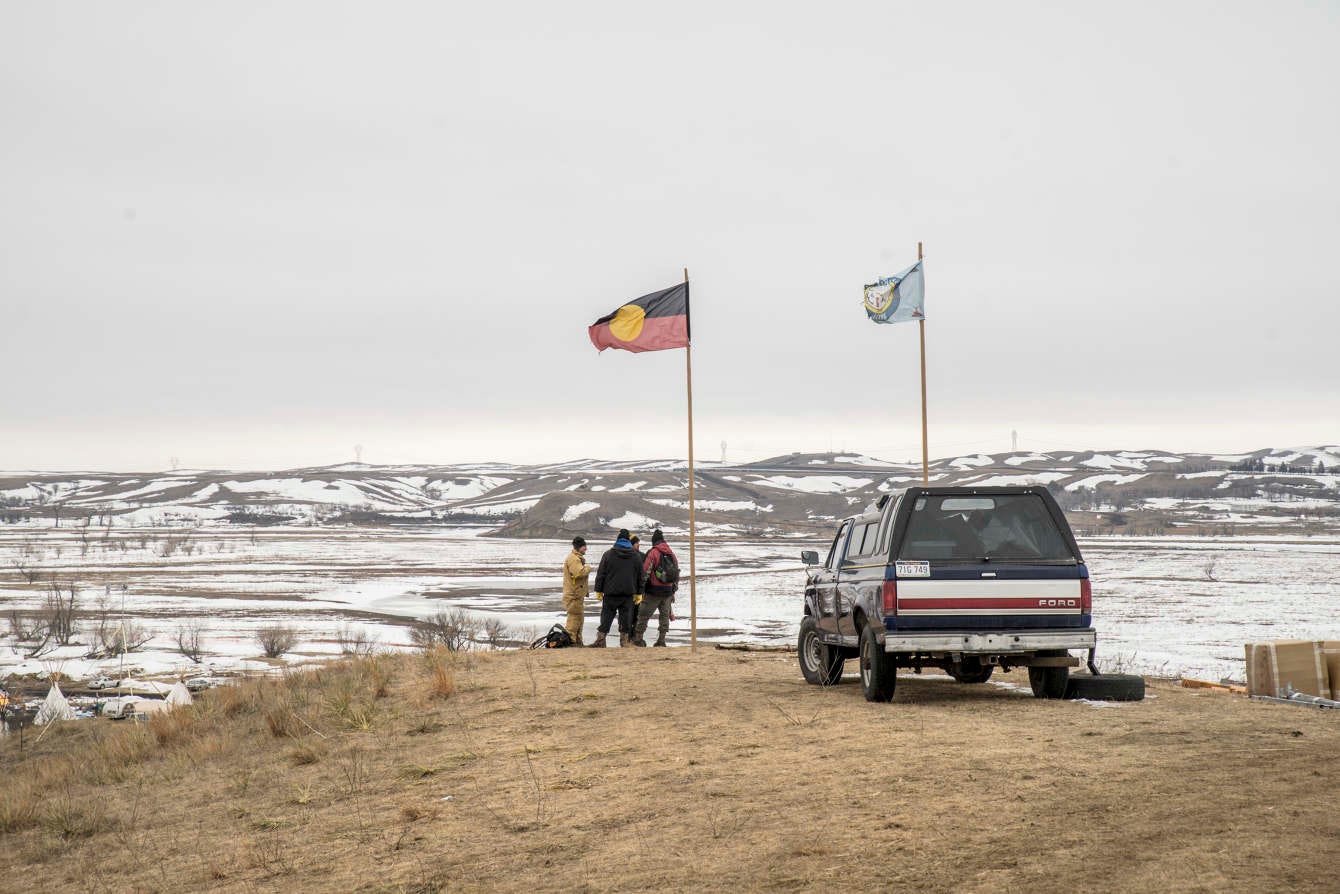
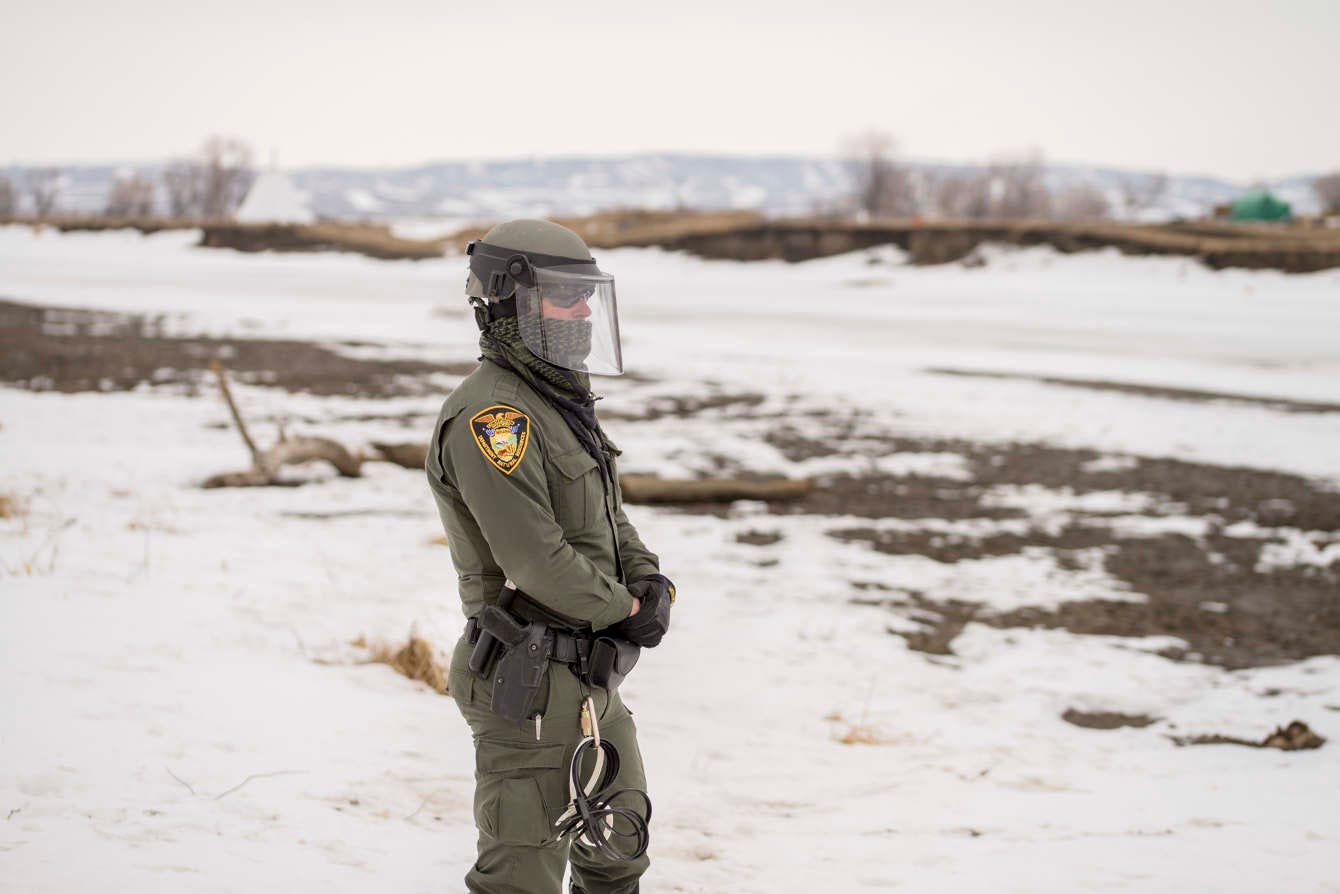
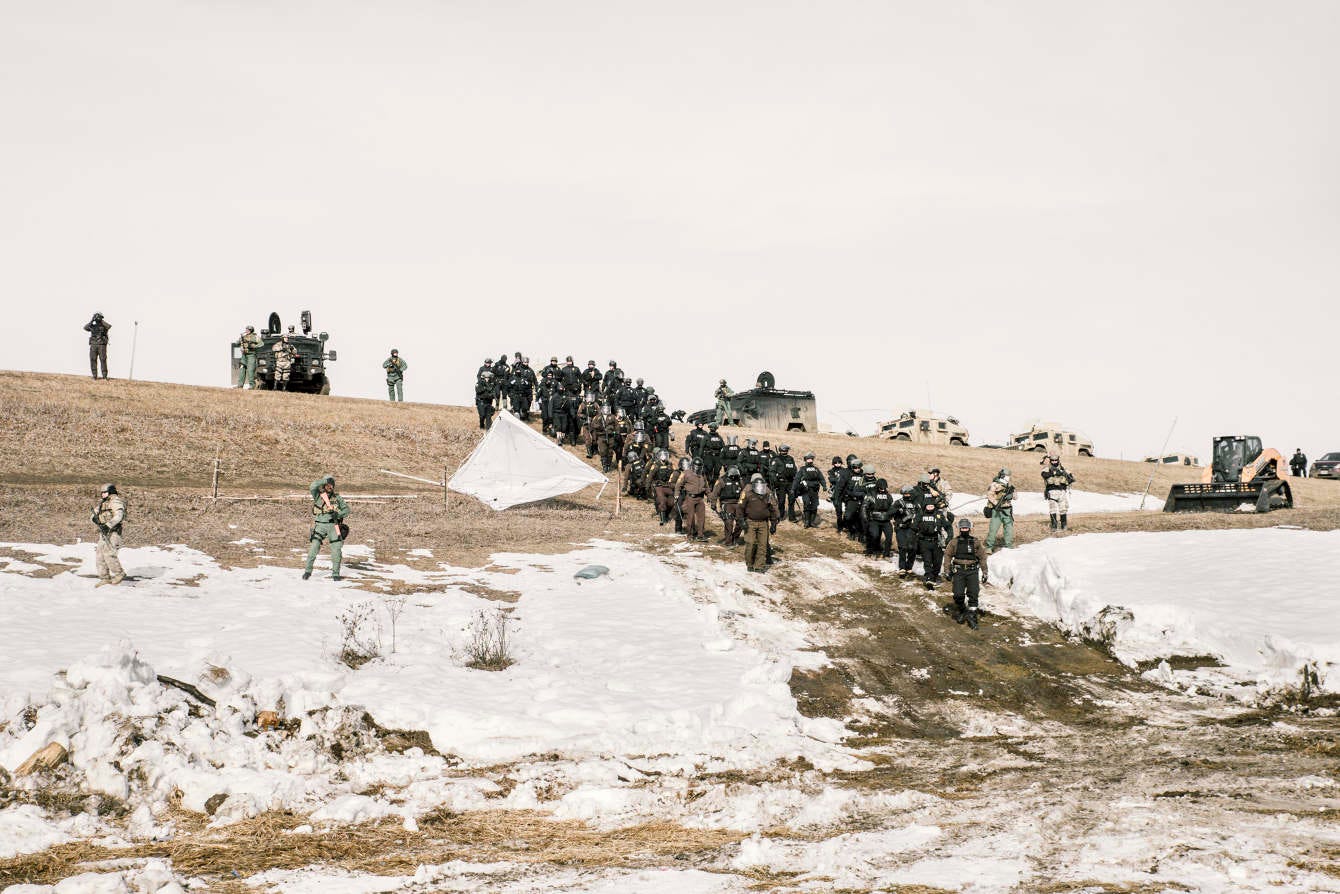
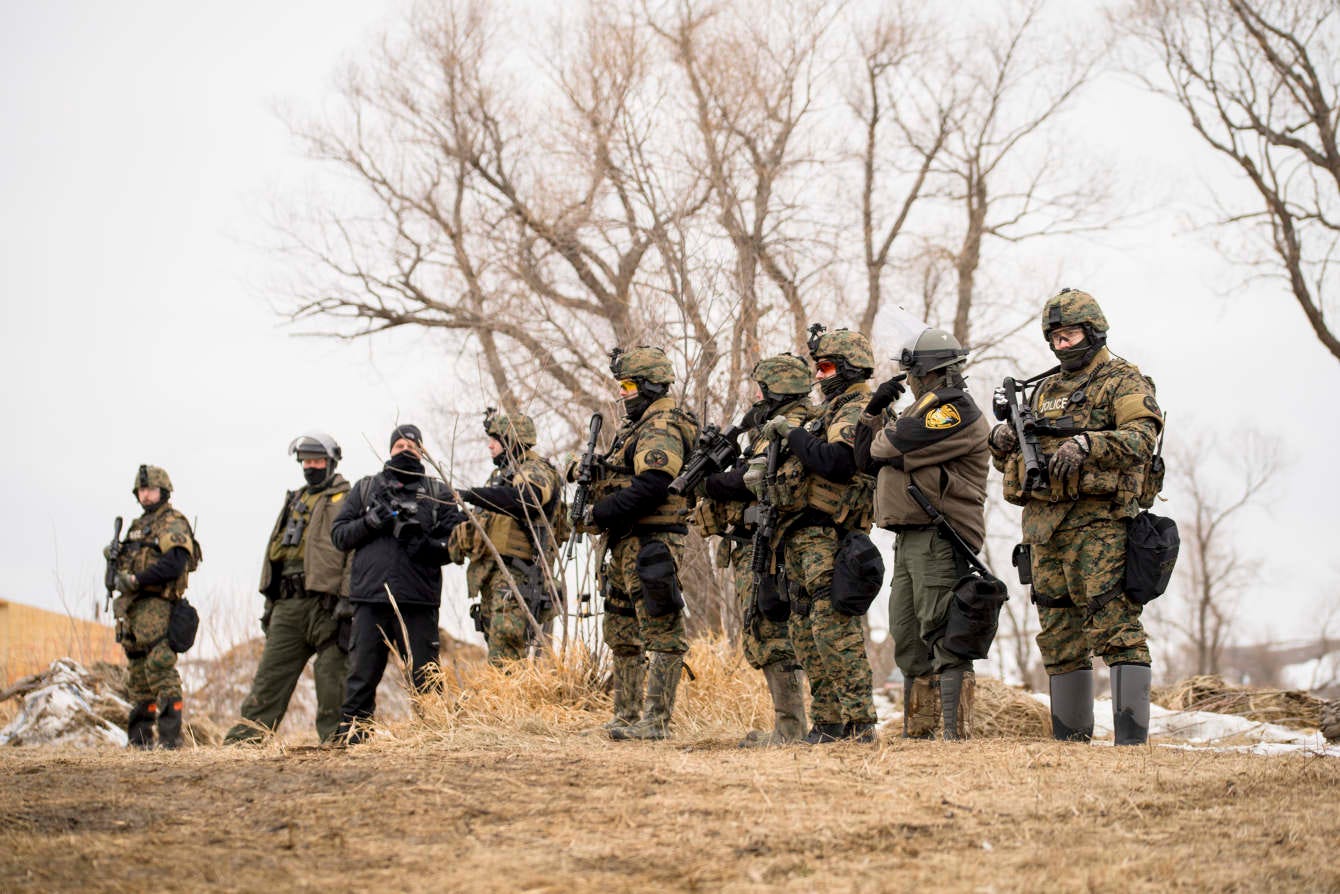
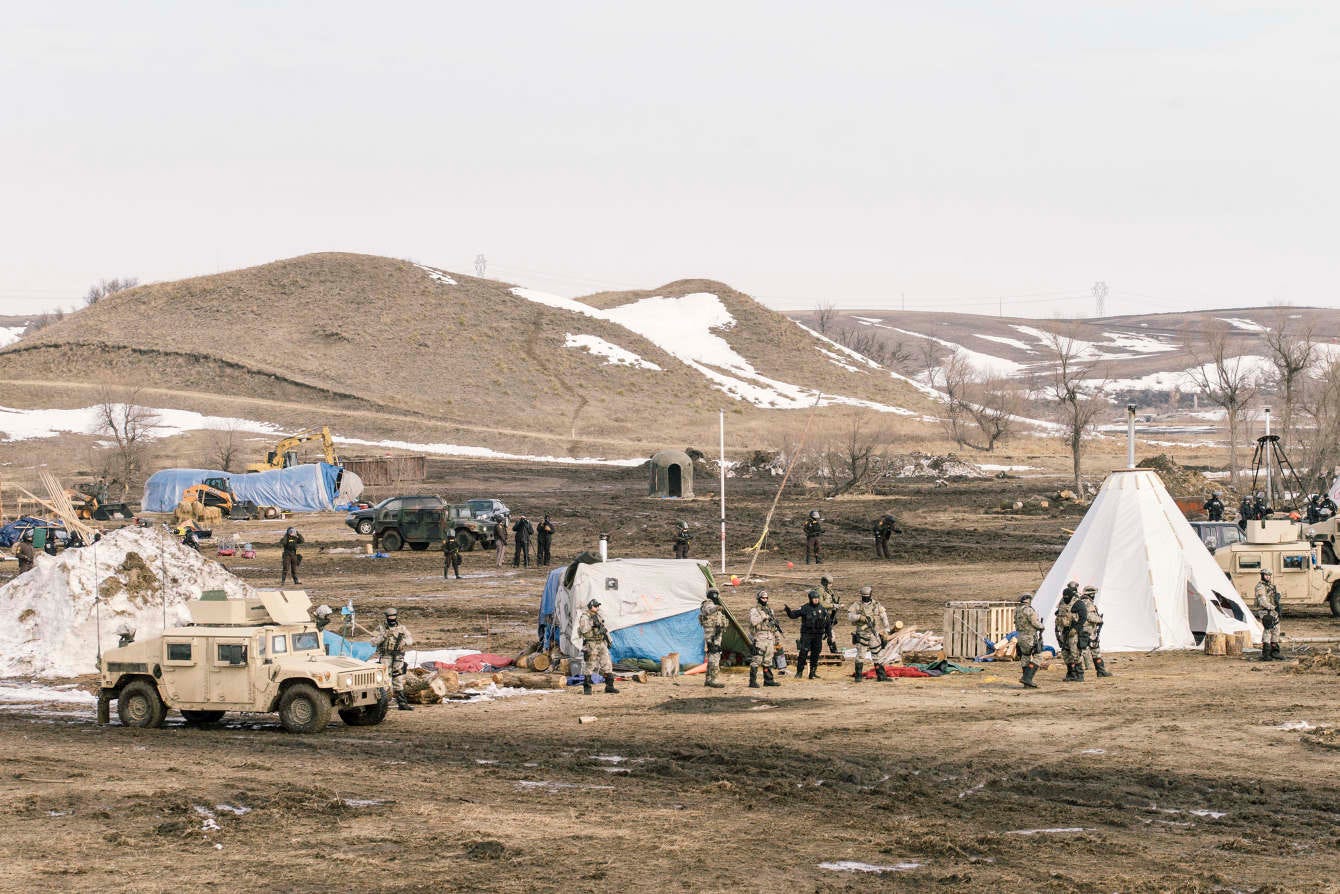
"My opinion is that at such times it would be appropriate for affinity groups to organize themselves according to a command structure."
This is completely in line with the Indian idea of "chiefs"... "war chiefs", etc. In critical times and situations, a leader is needed, but it's up to each warrior whether to join the endeavor or not.
"One theory of hypnosis is called atavistic regression. It posits that hypnosis works because evolution prepared human beings to respond automatically to suggestions given by a trusted authority when the fight-flight-or freeze instinct kicks in. It's a survival thing; sometimes there's no time to think. This theory resonates with me. I've
seen it often - people who are scared, confused, or anxious are quick to follow orders."
Isn't this what happened with the vast majority of society in spring of 2020?